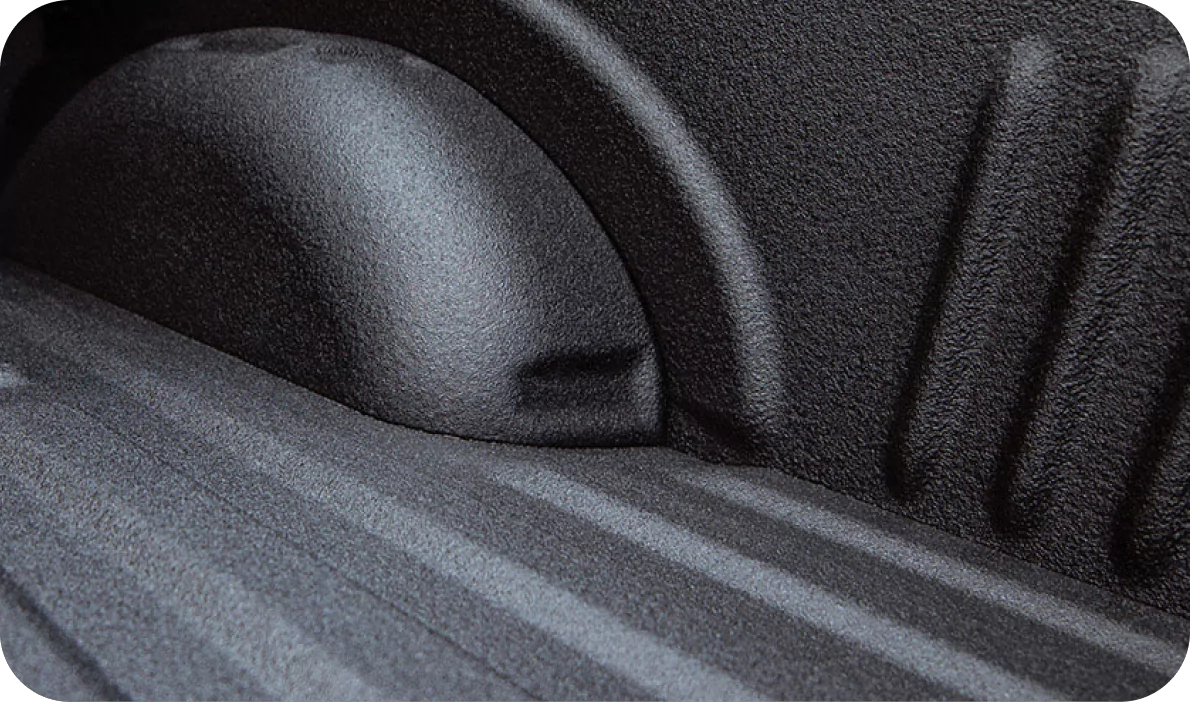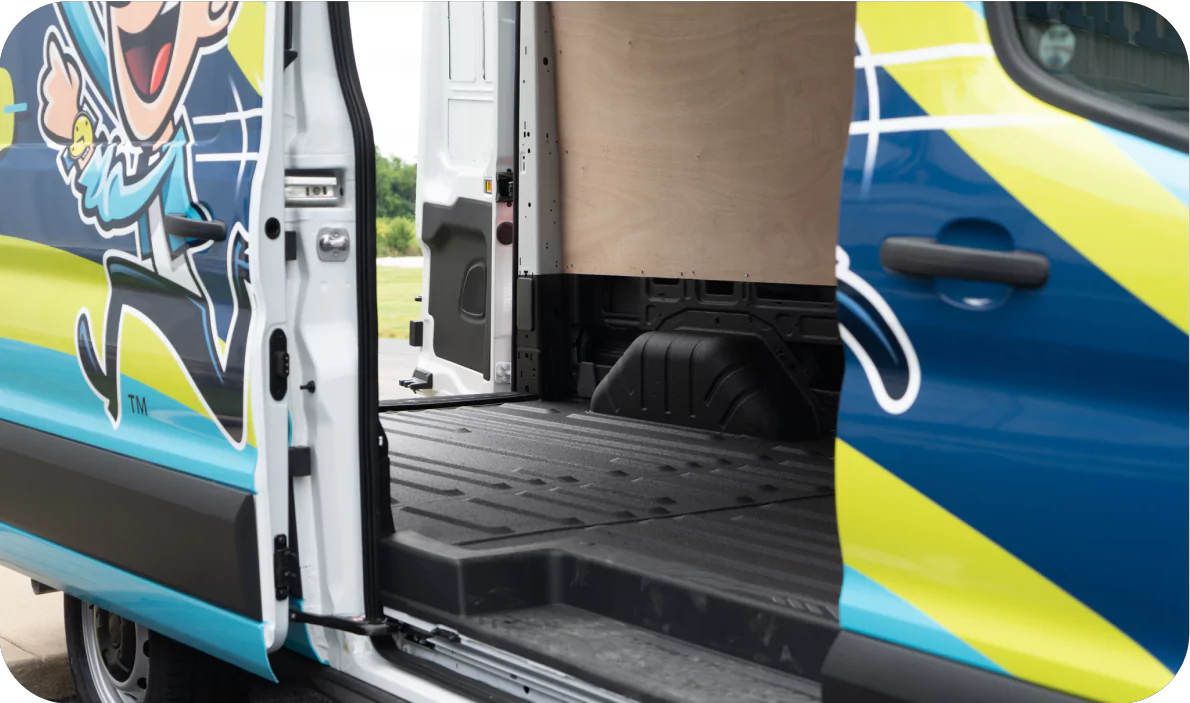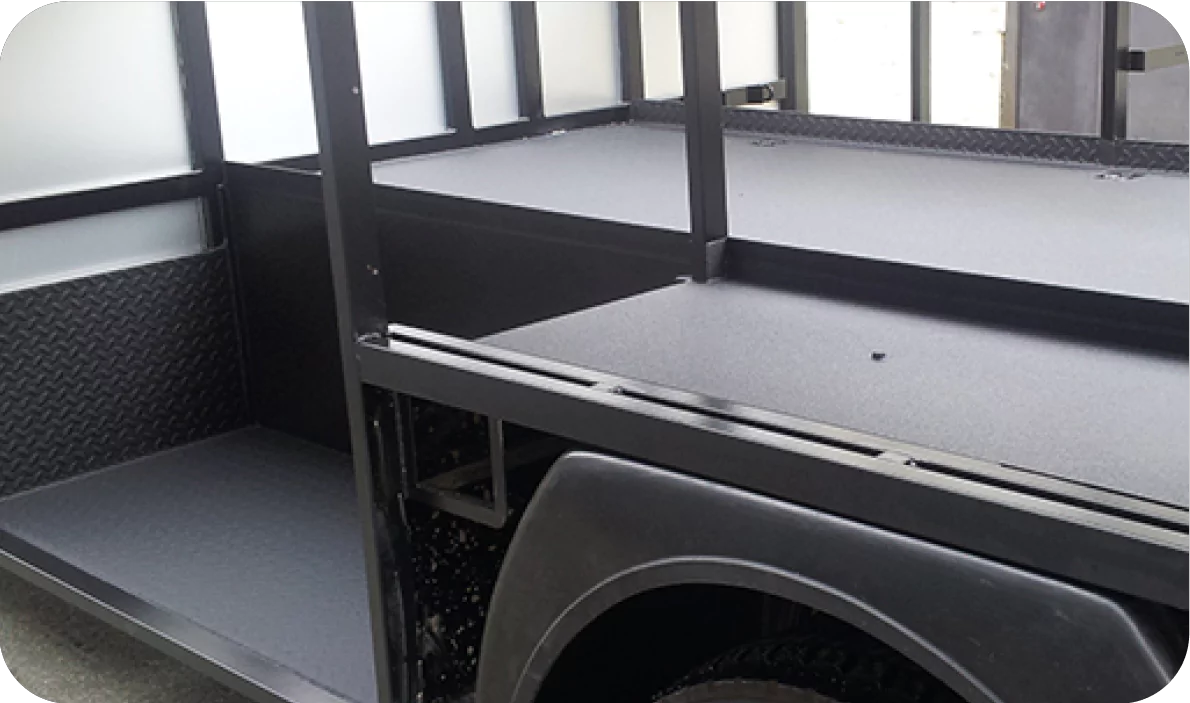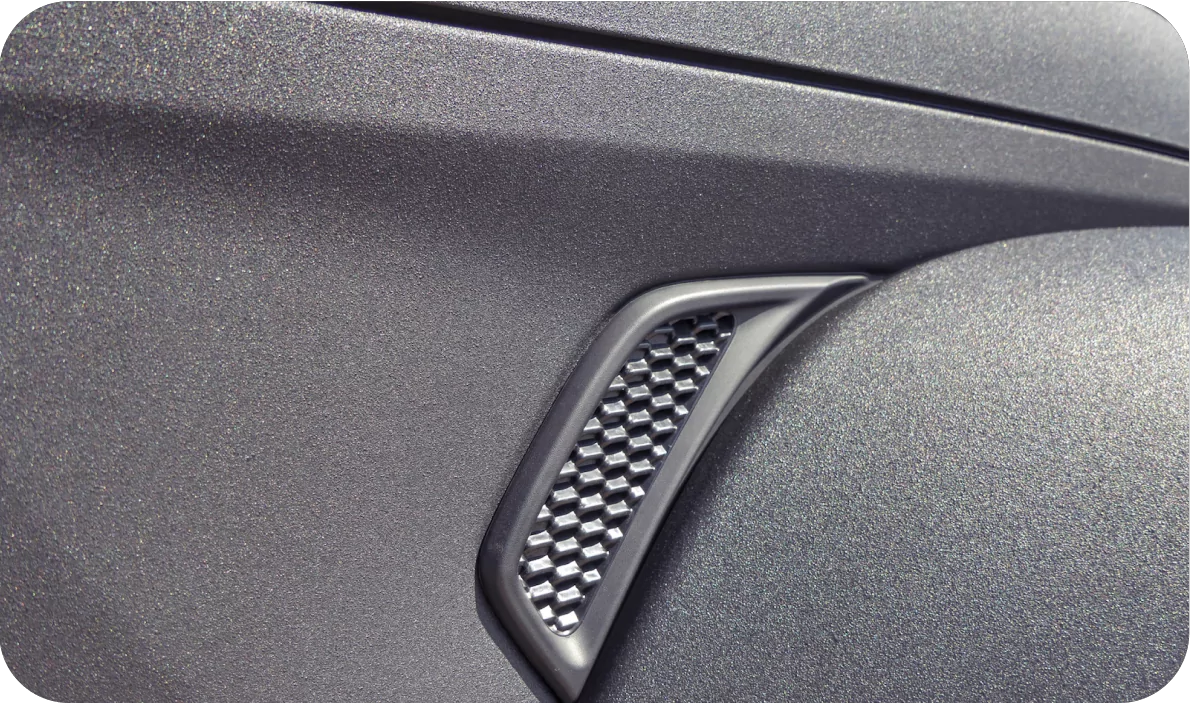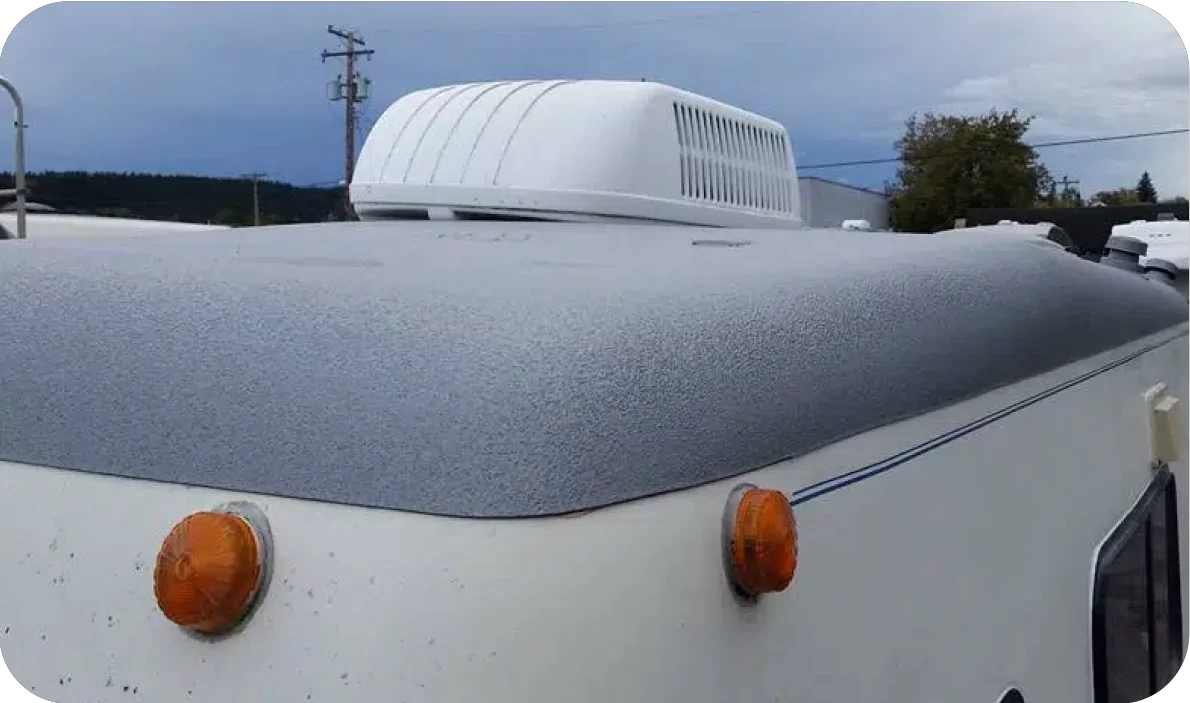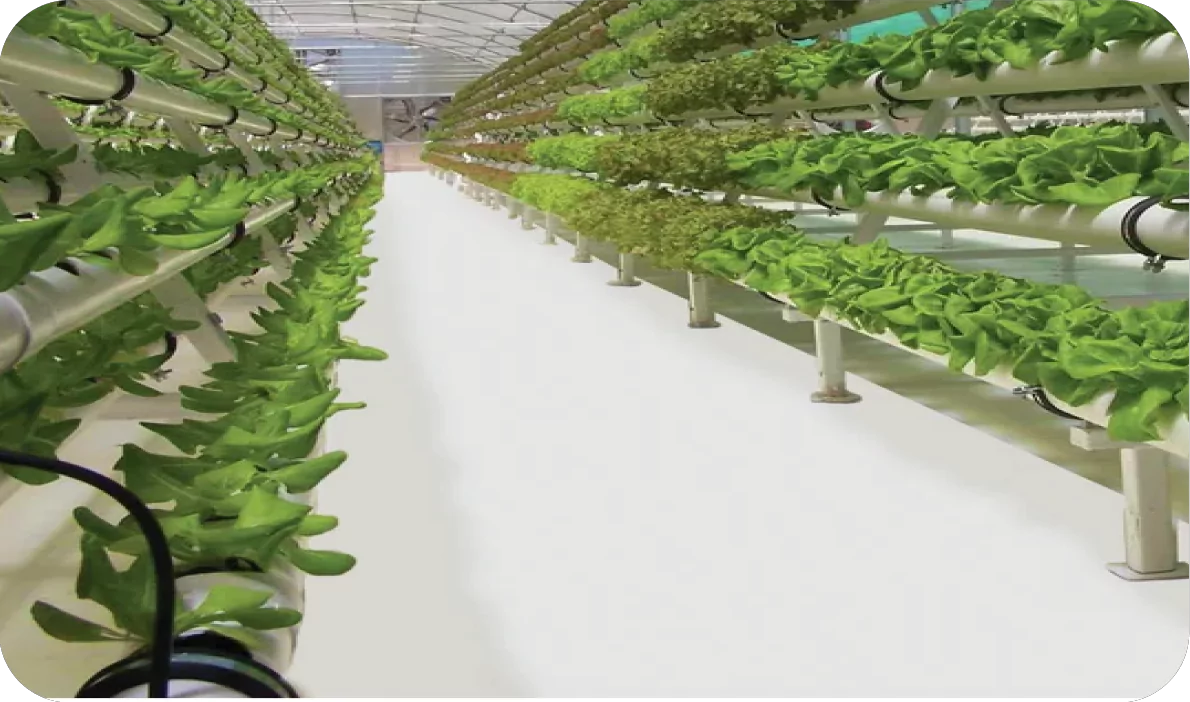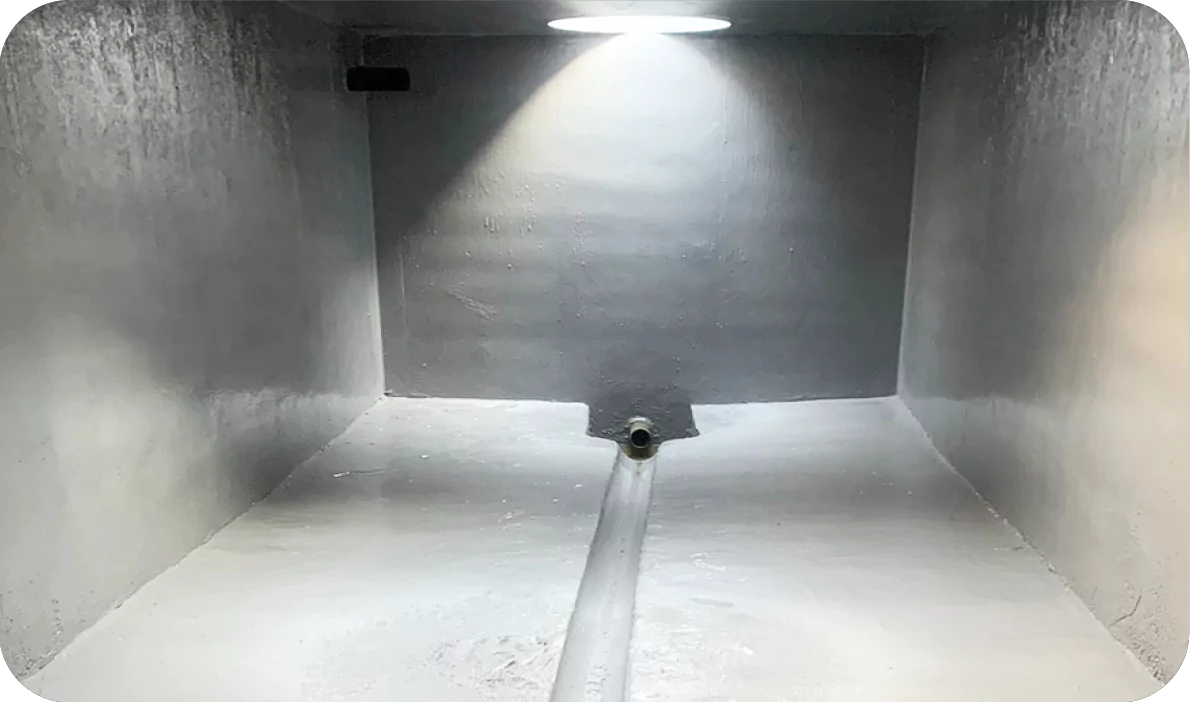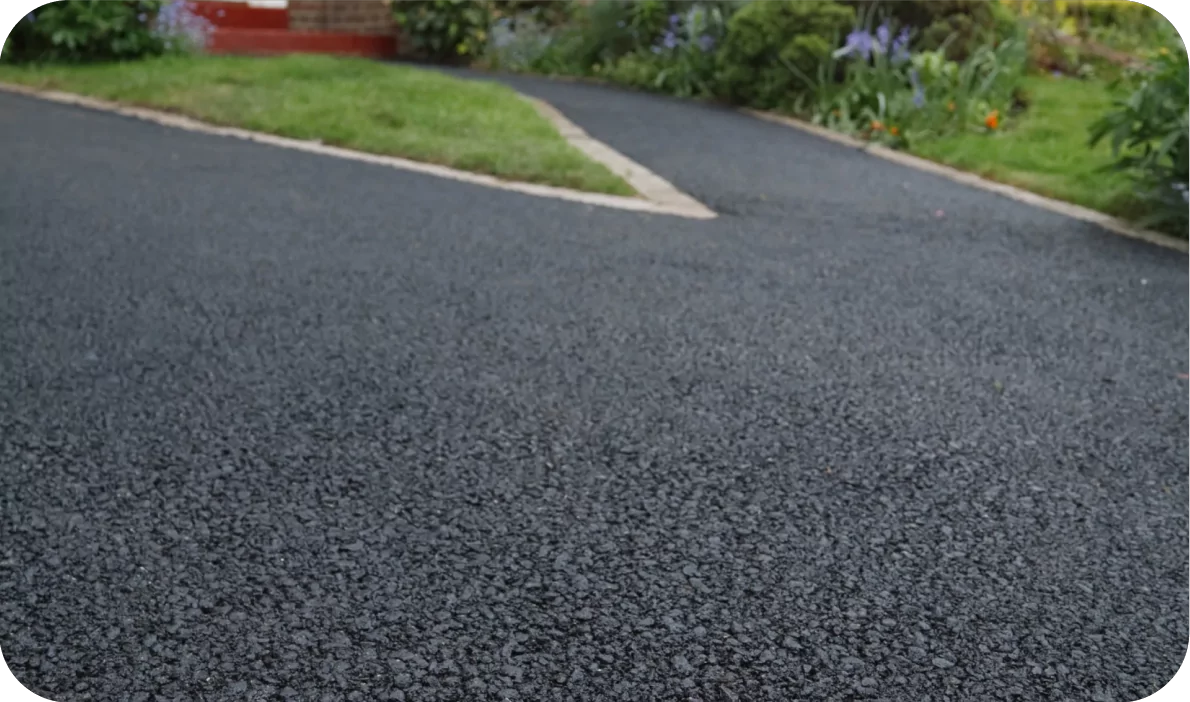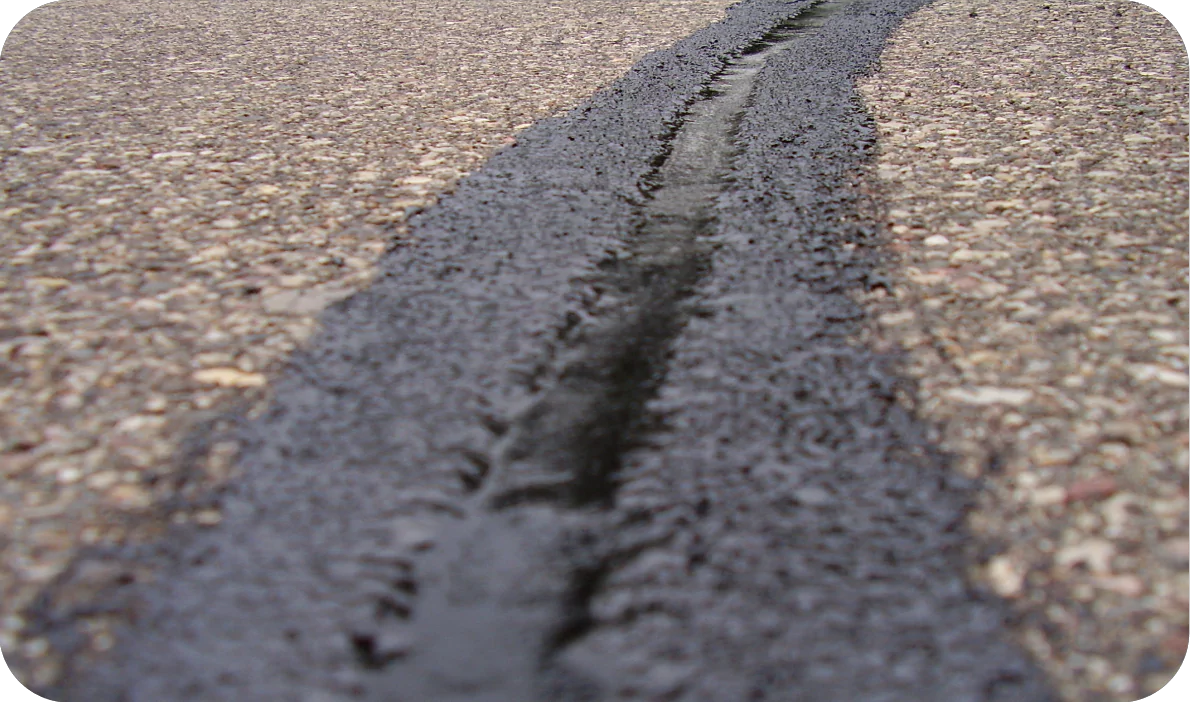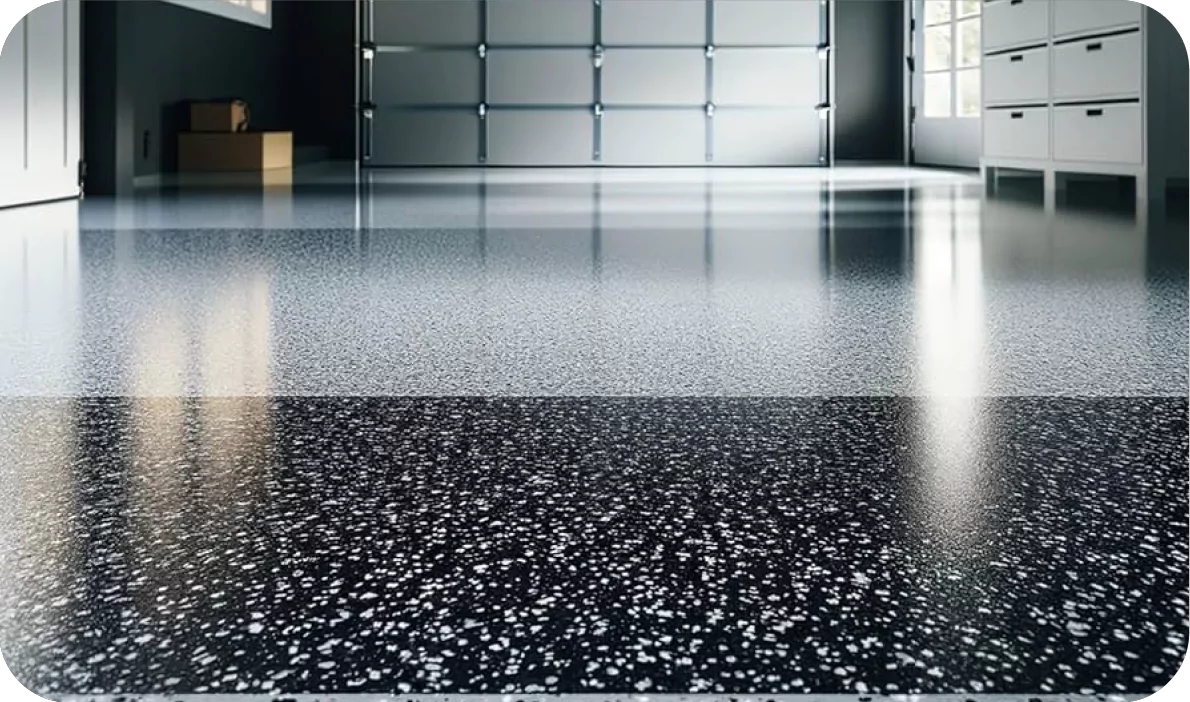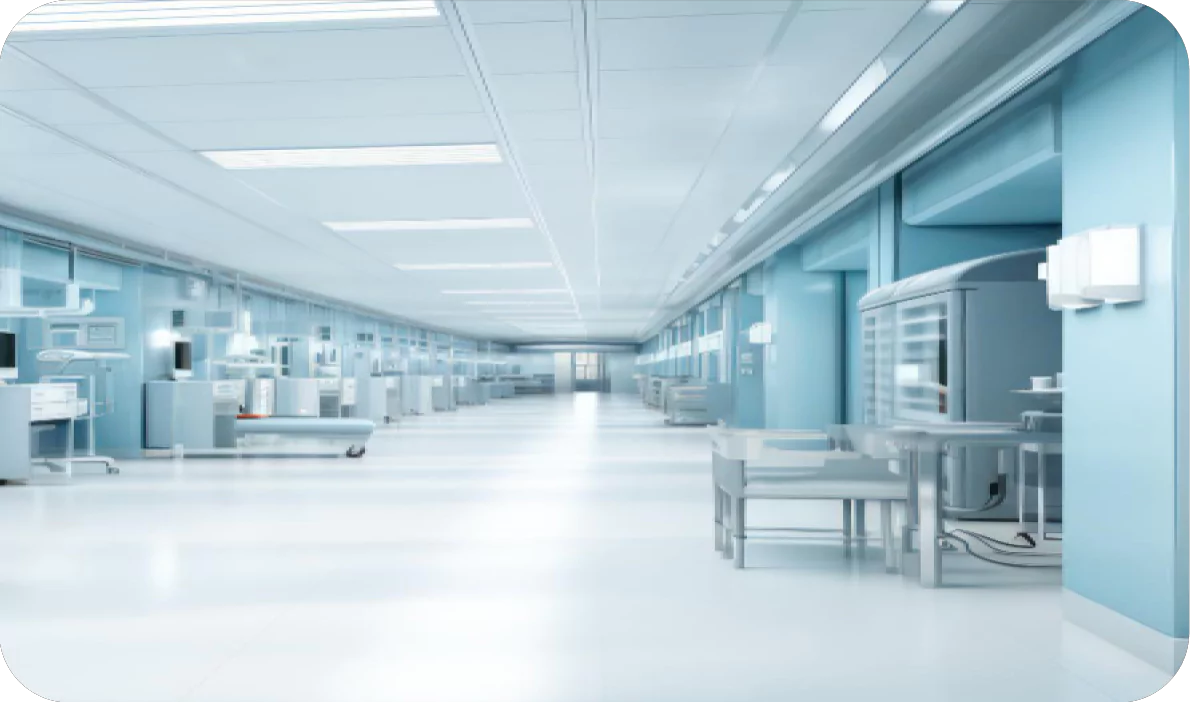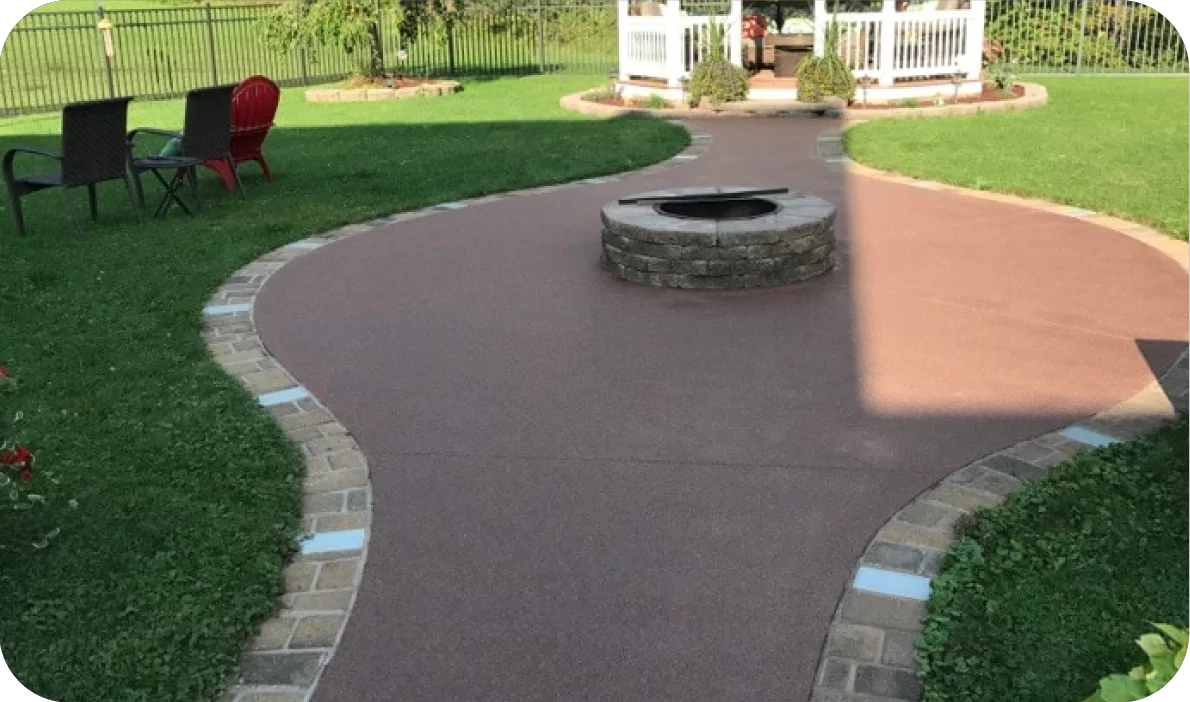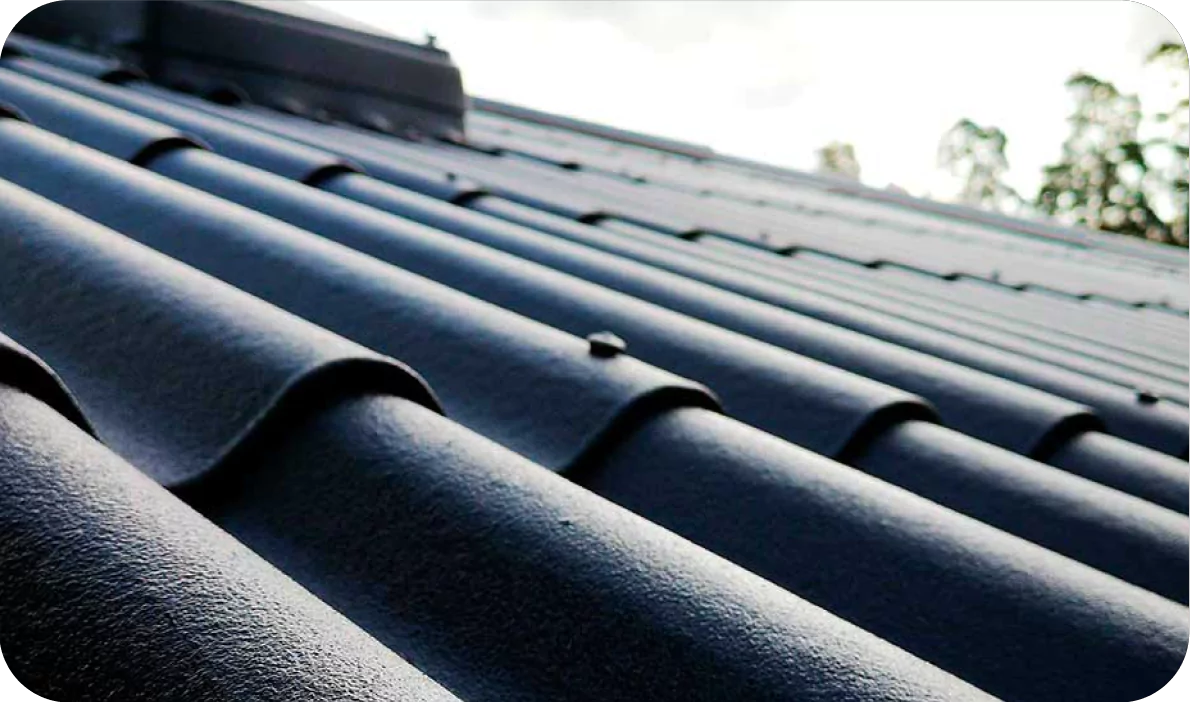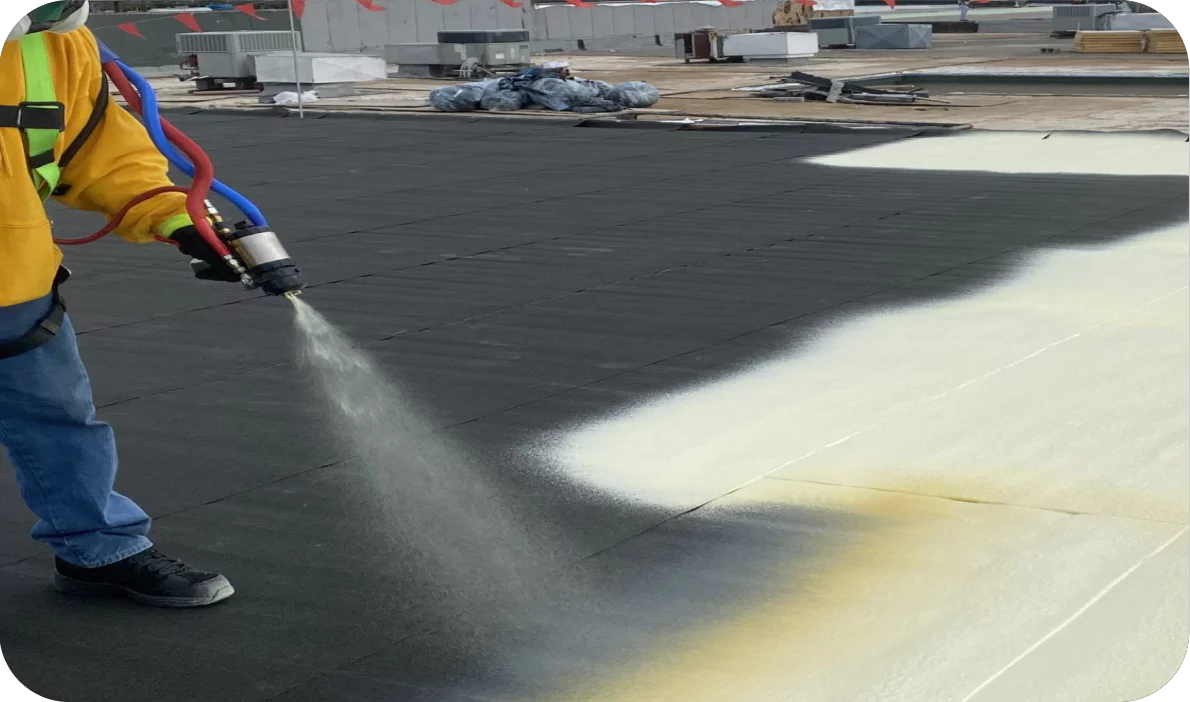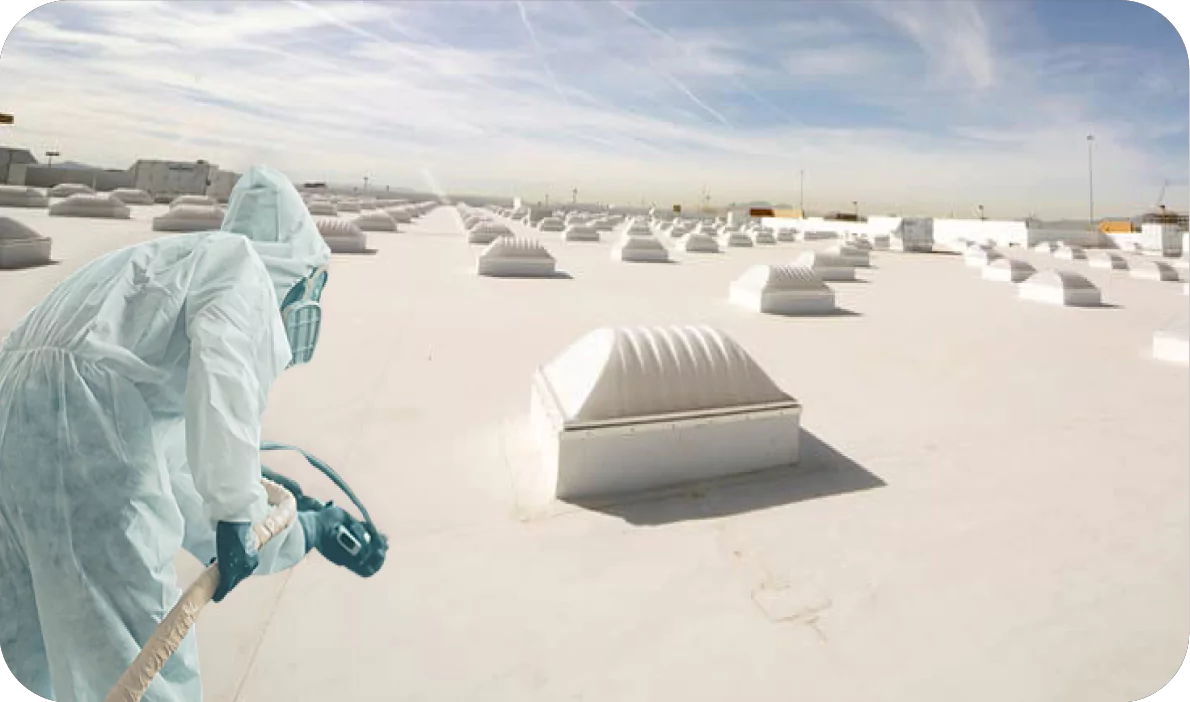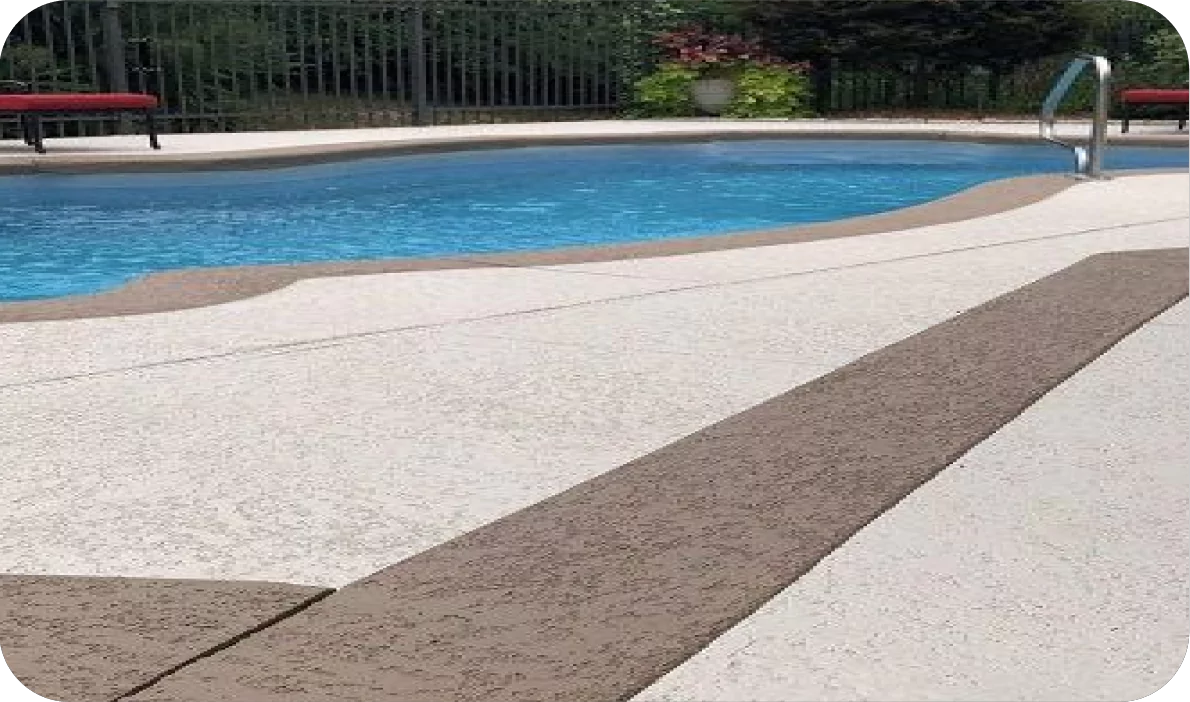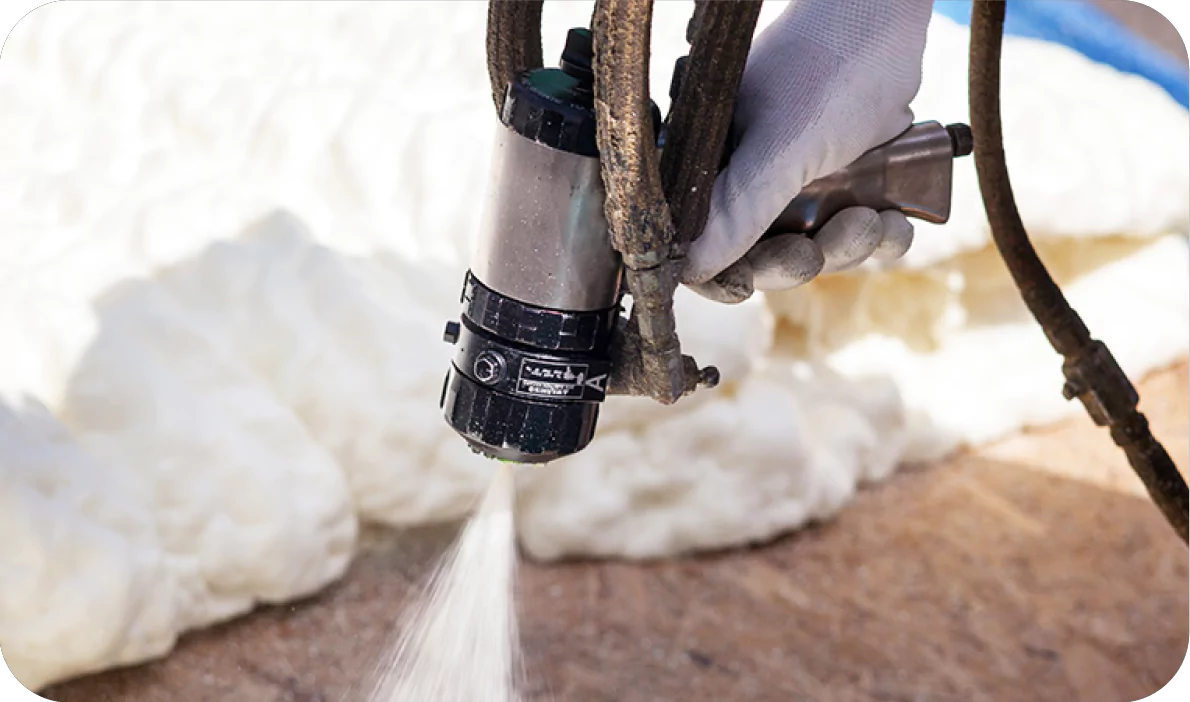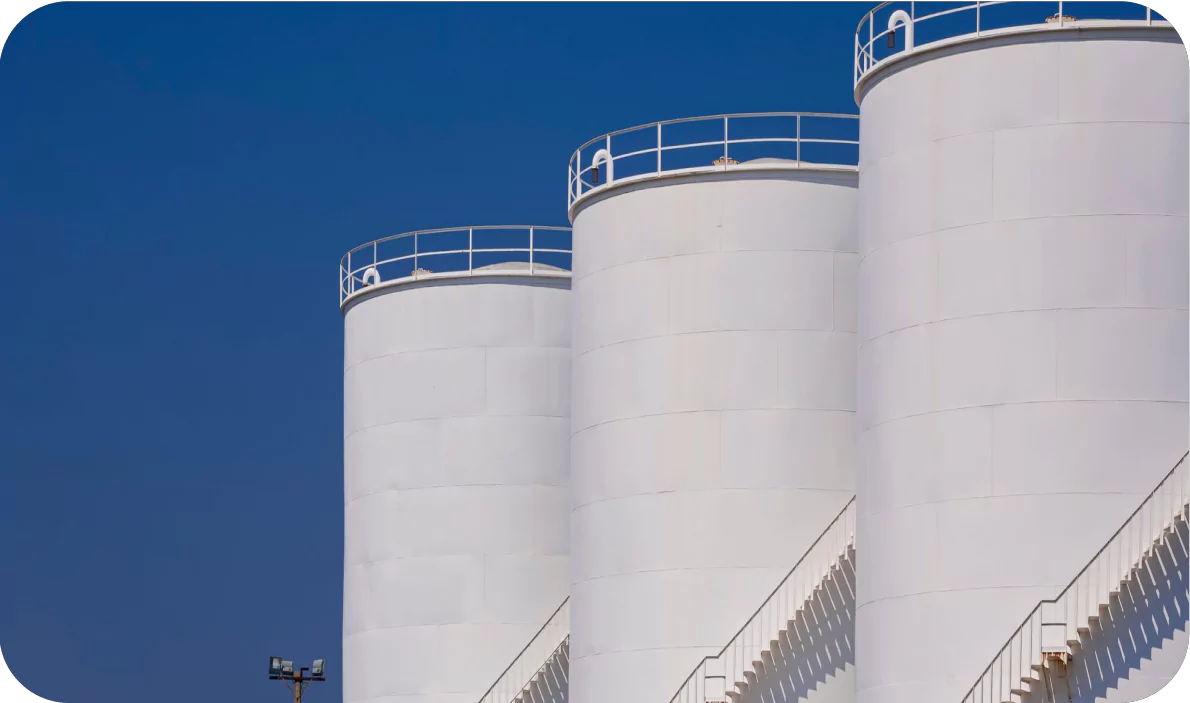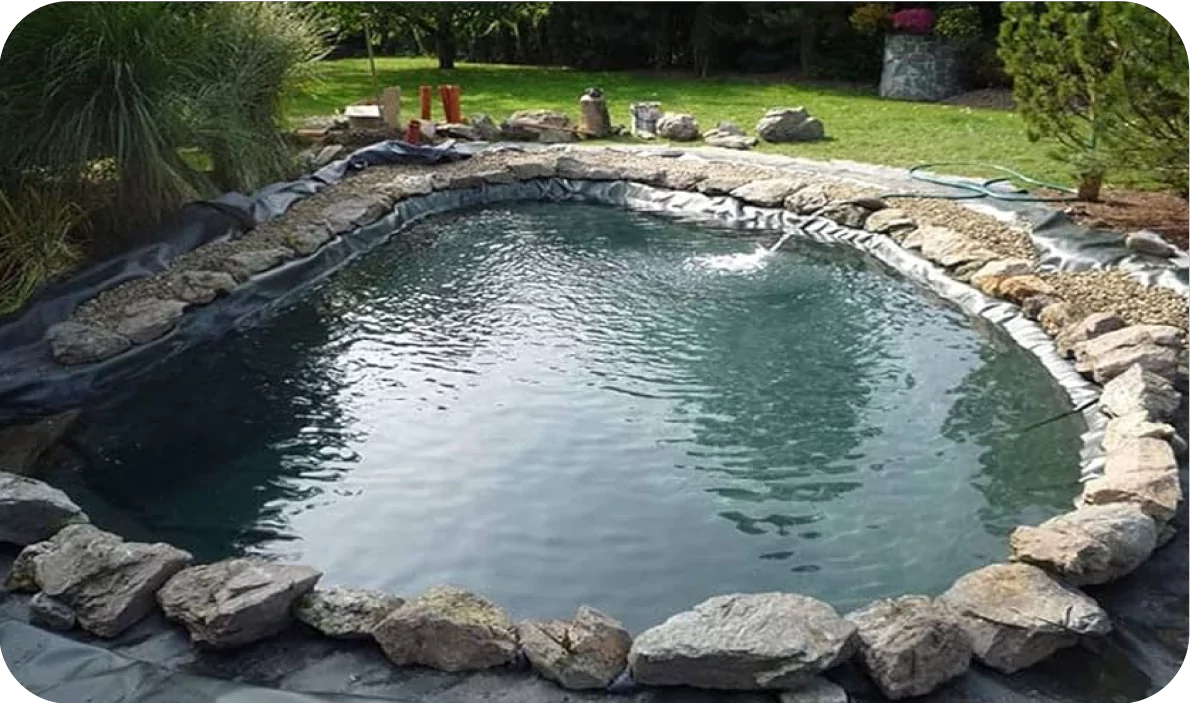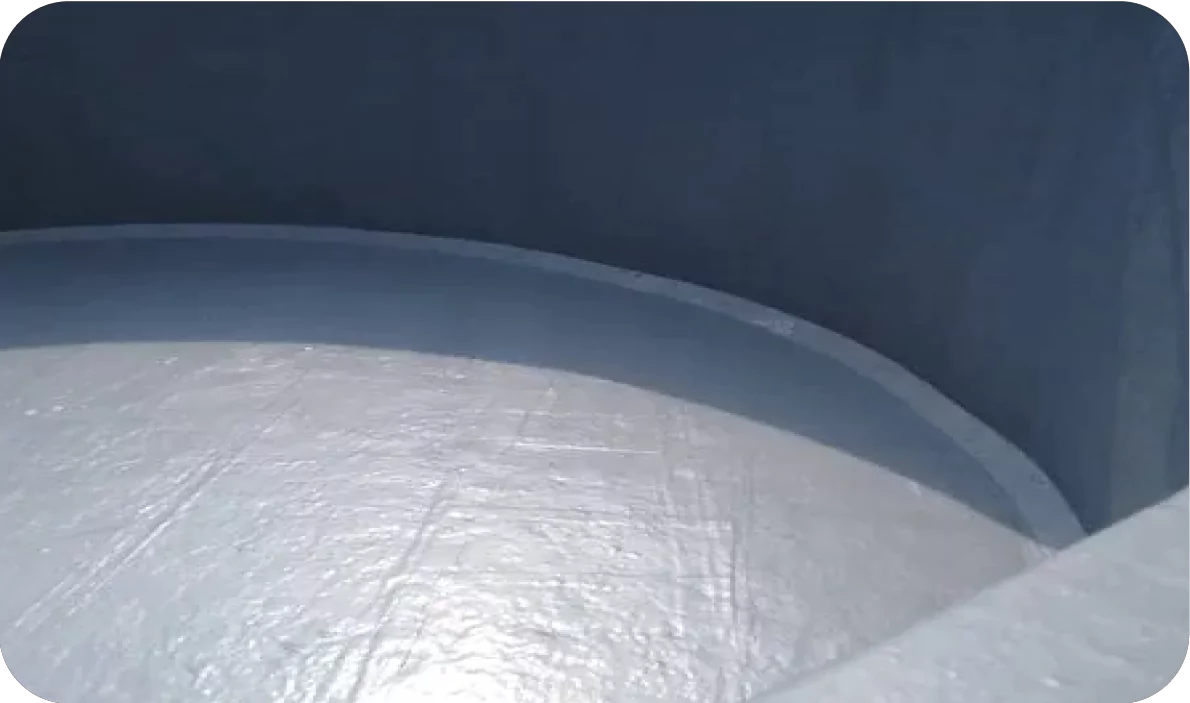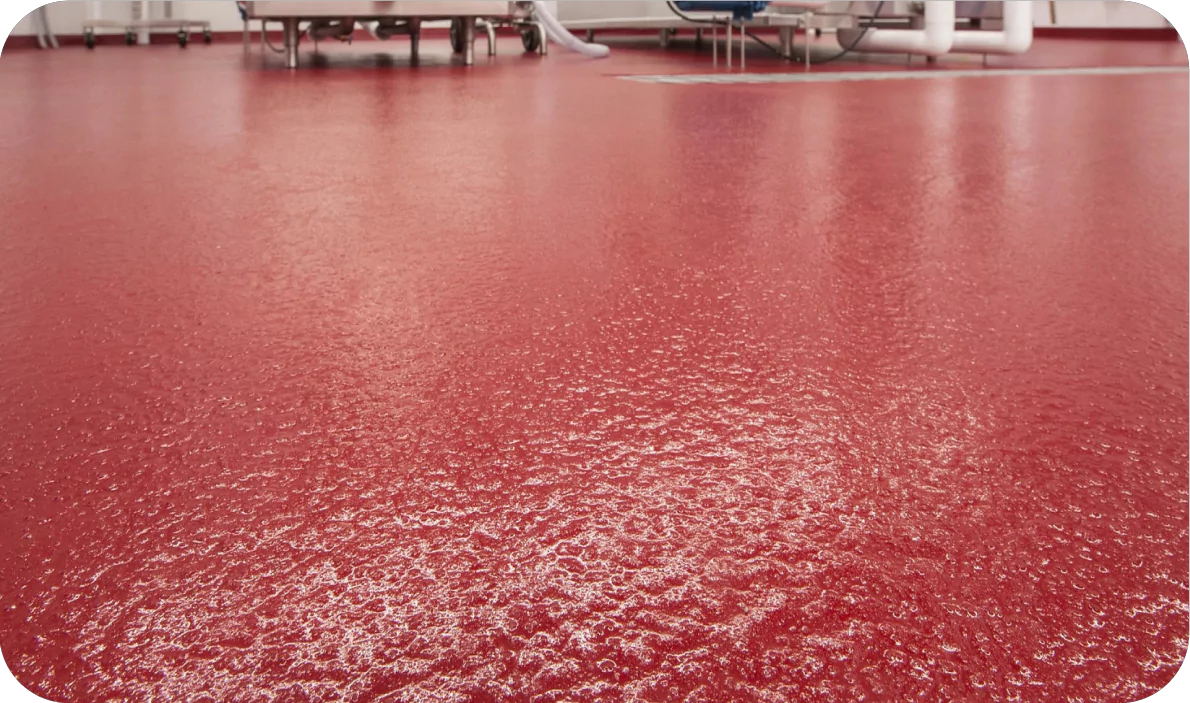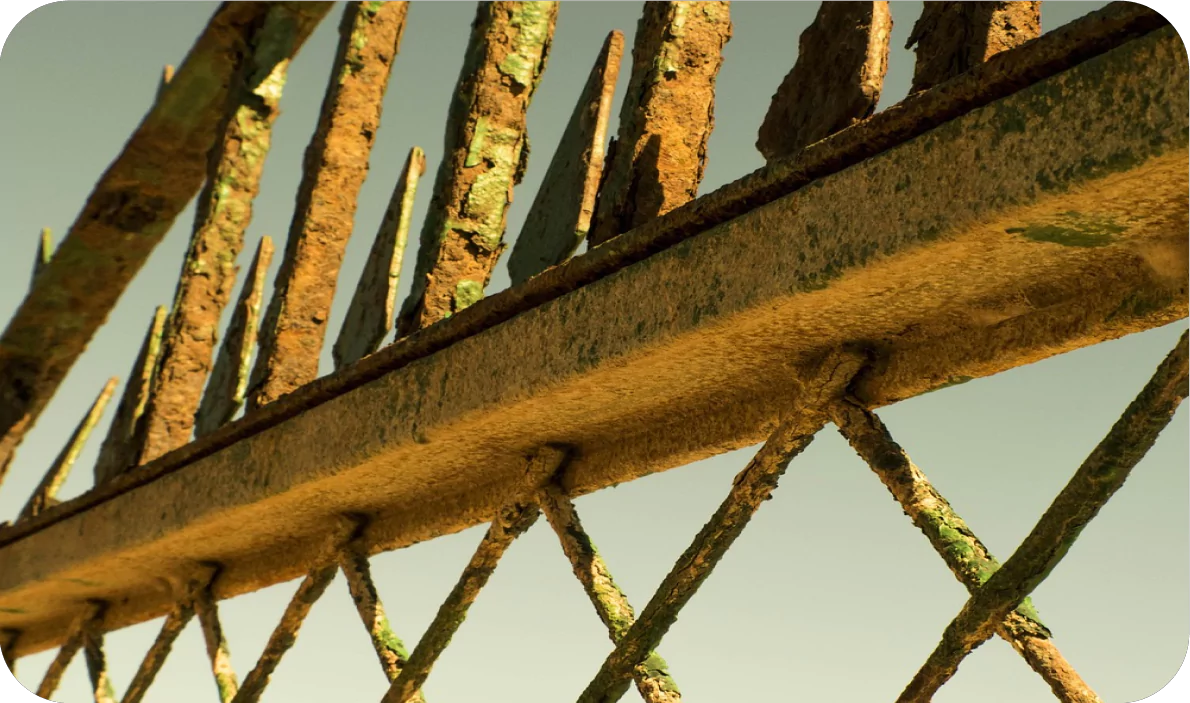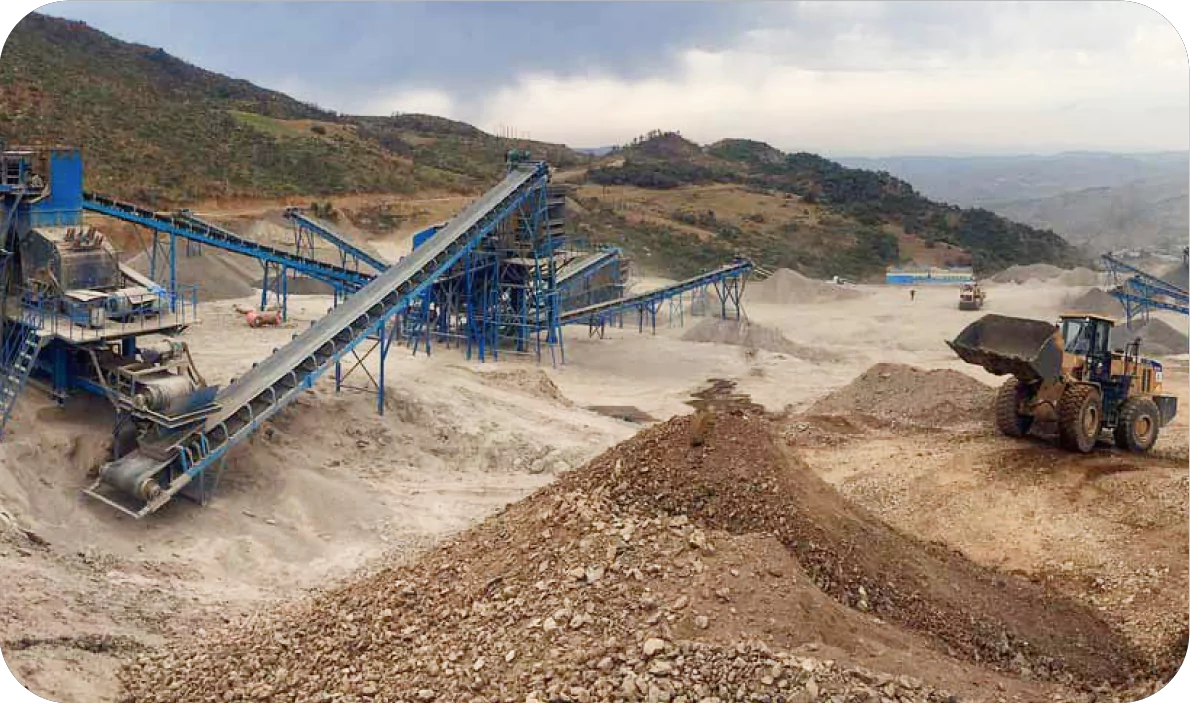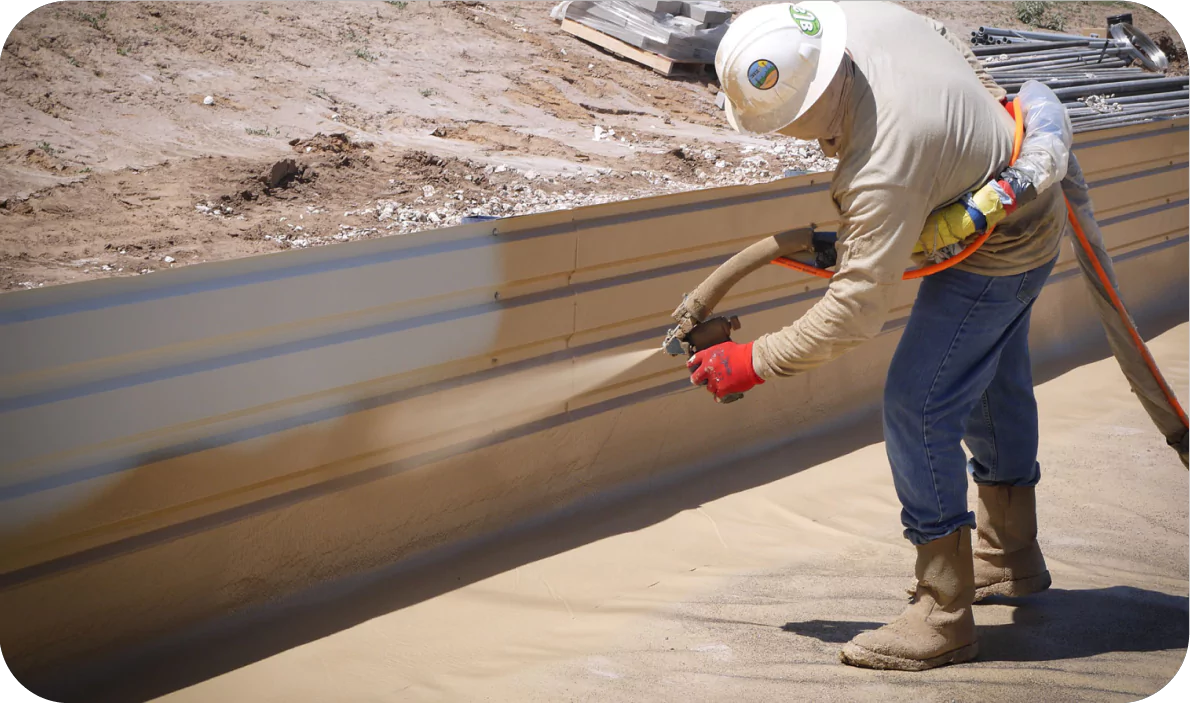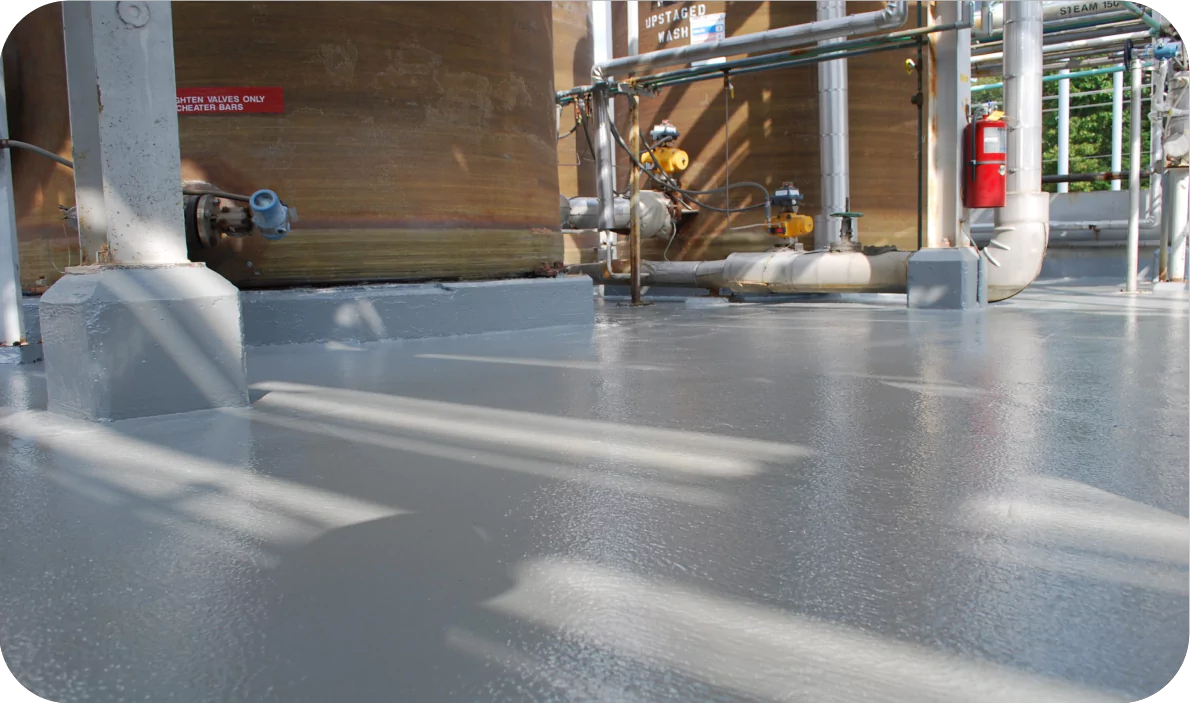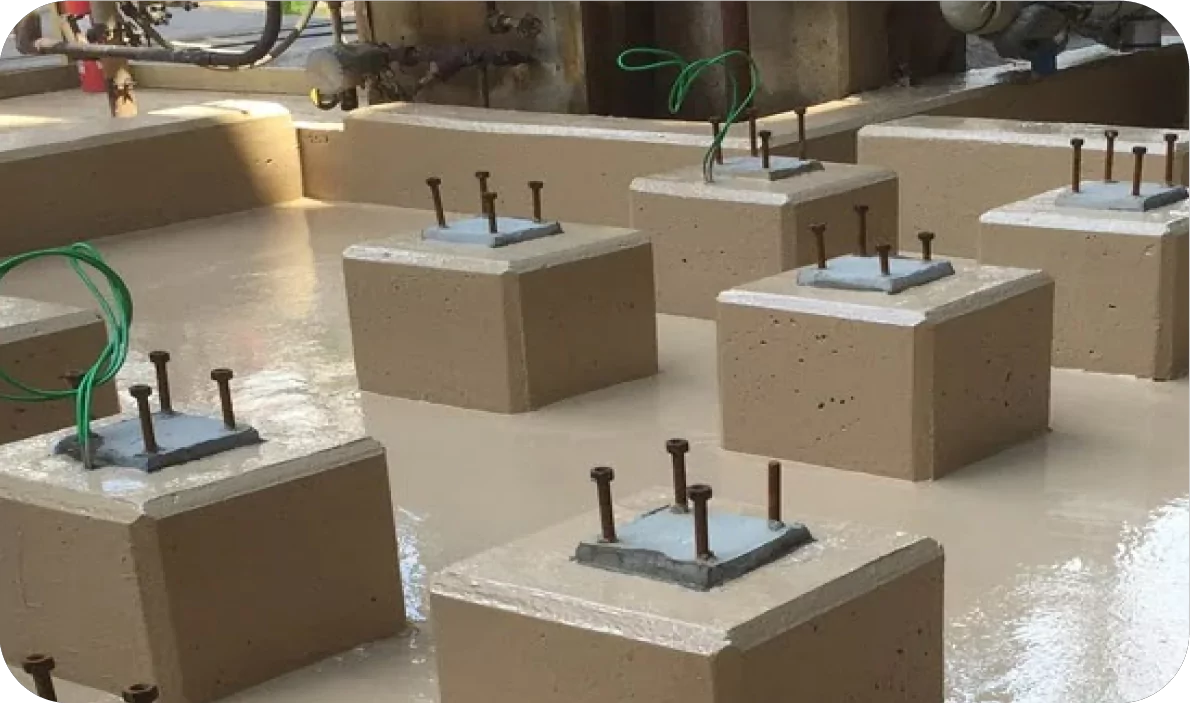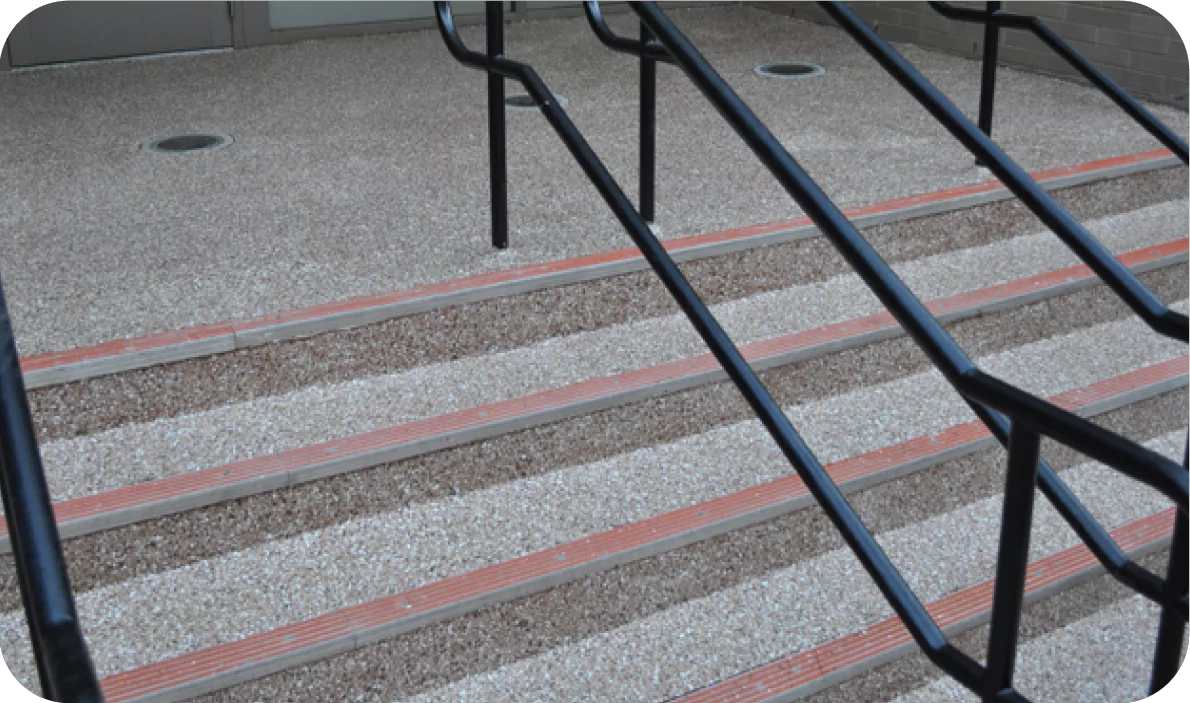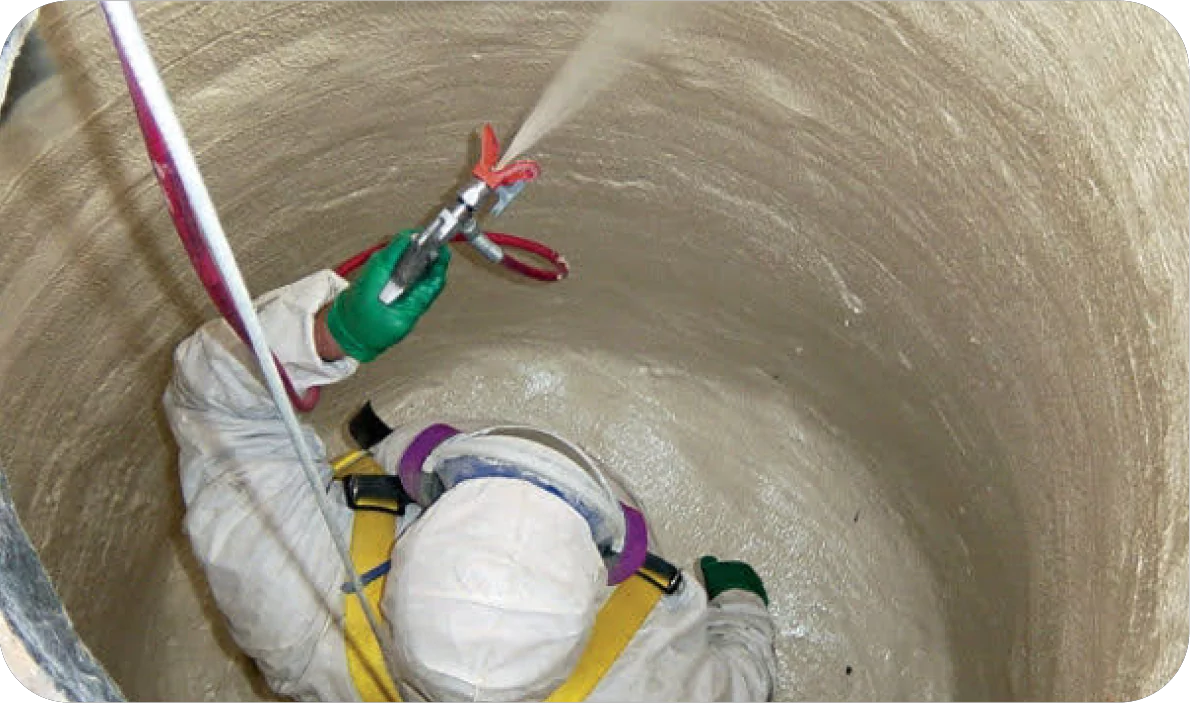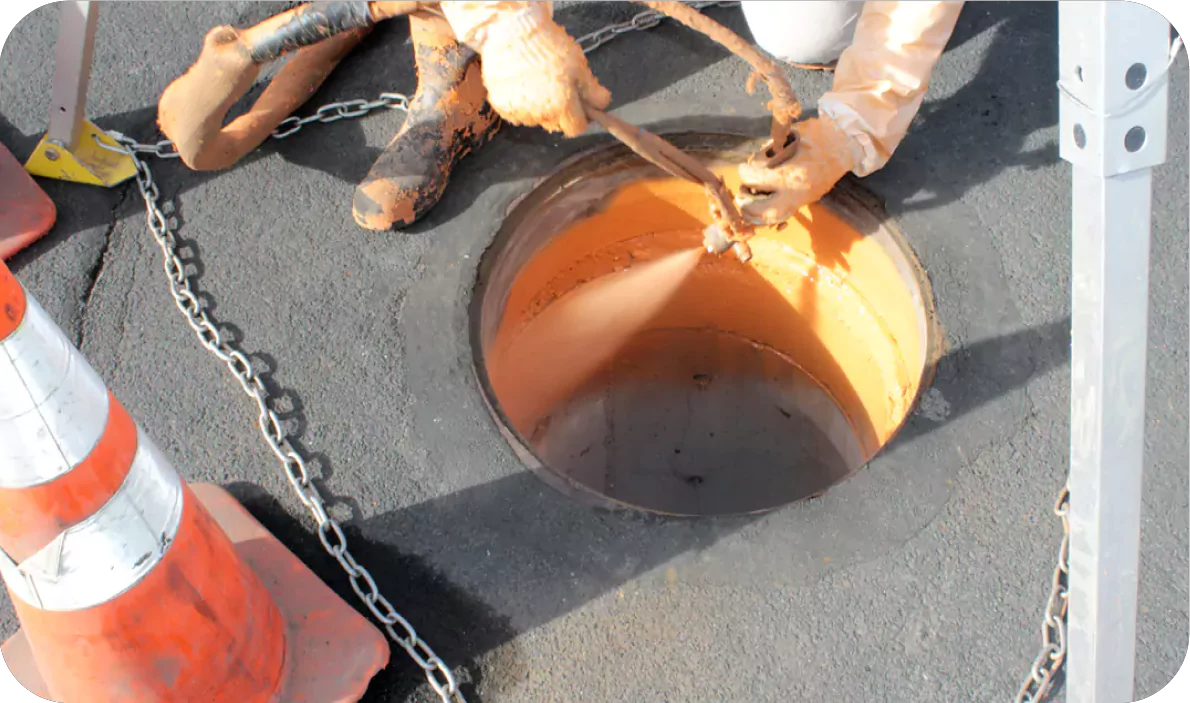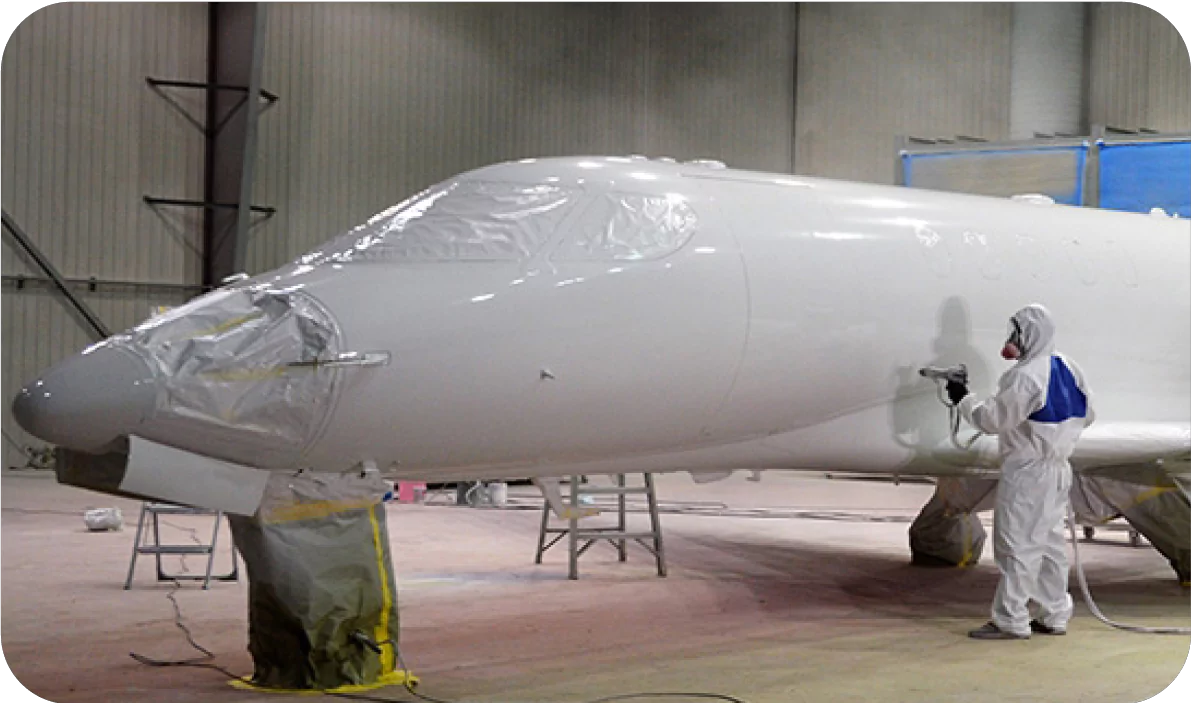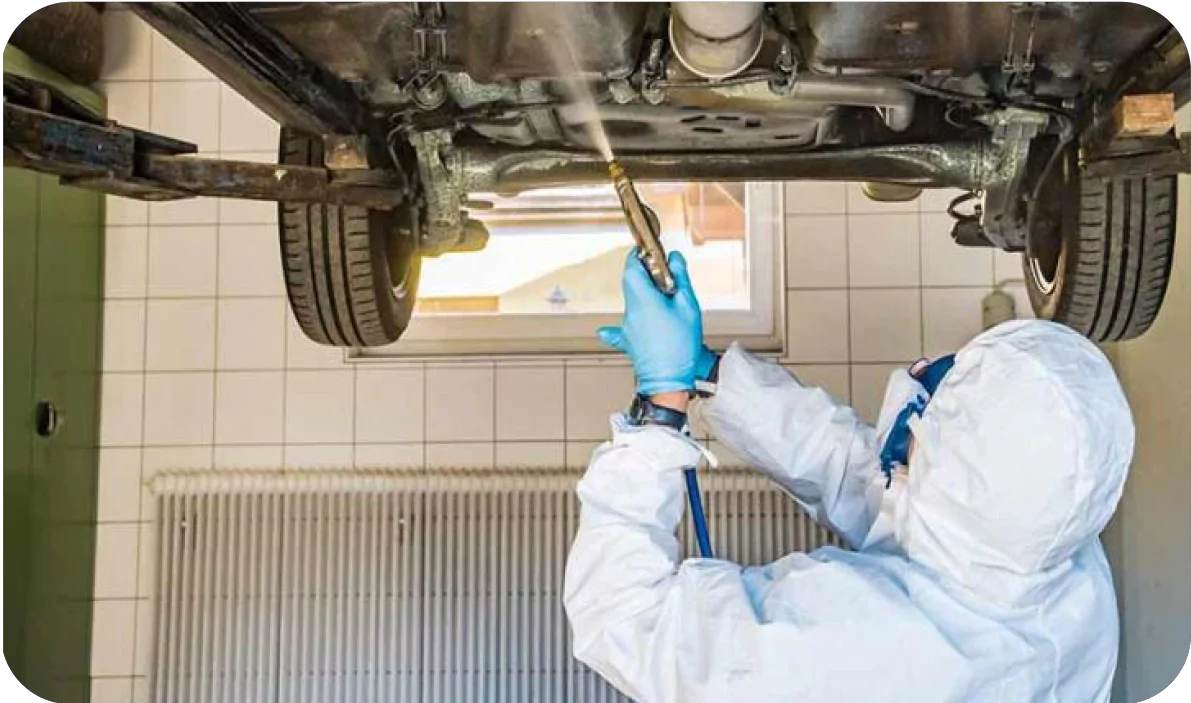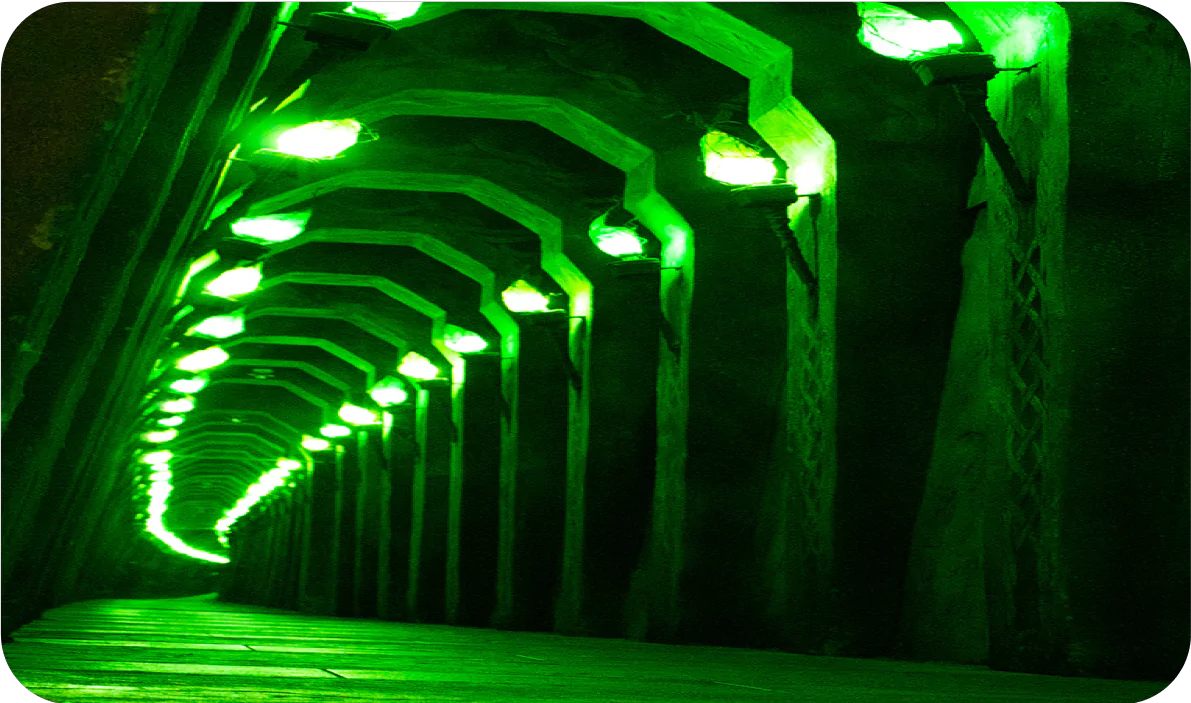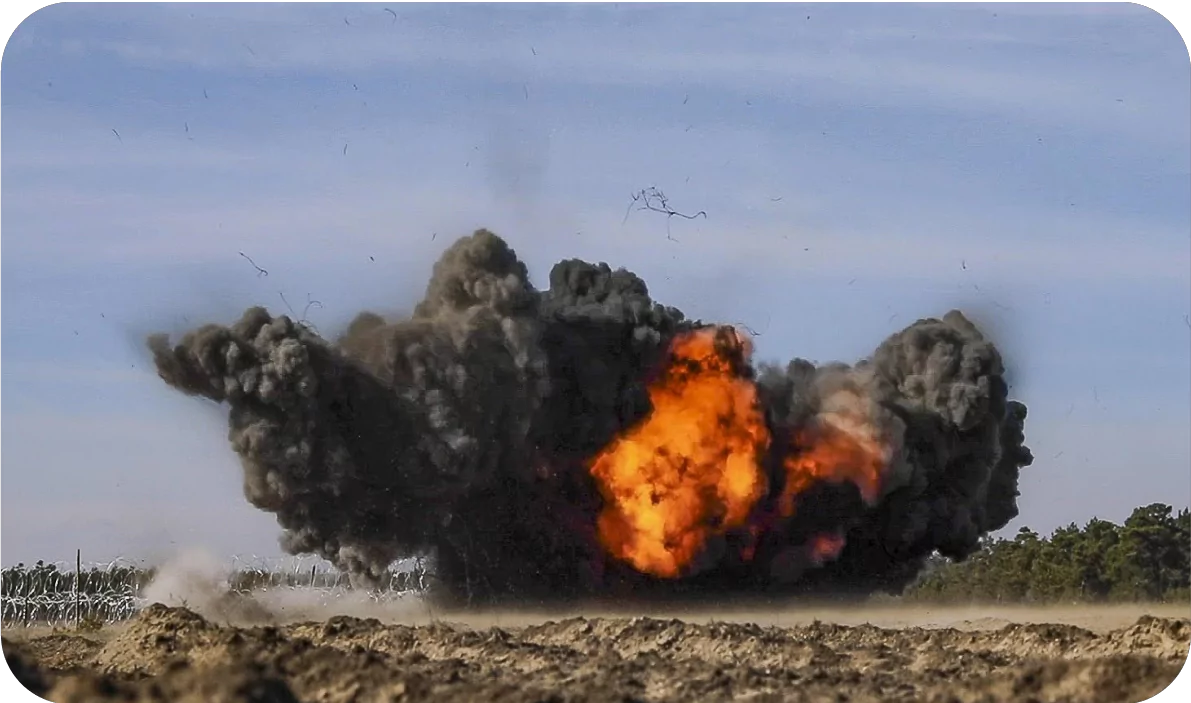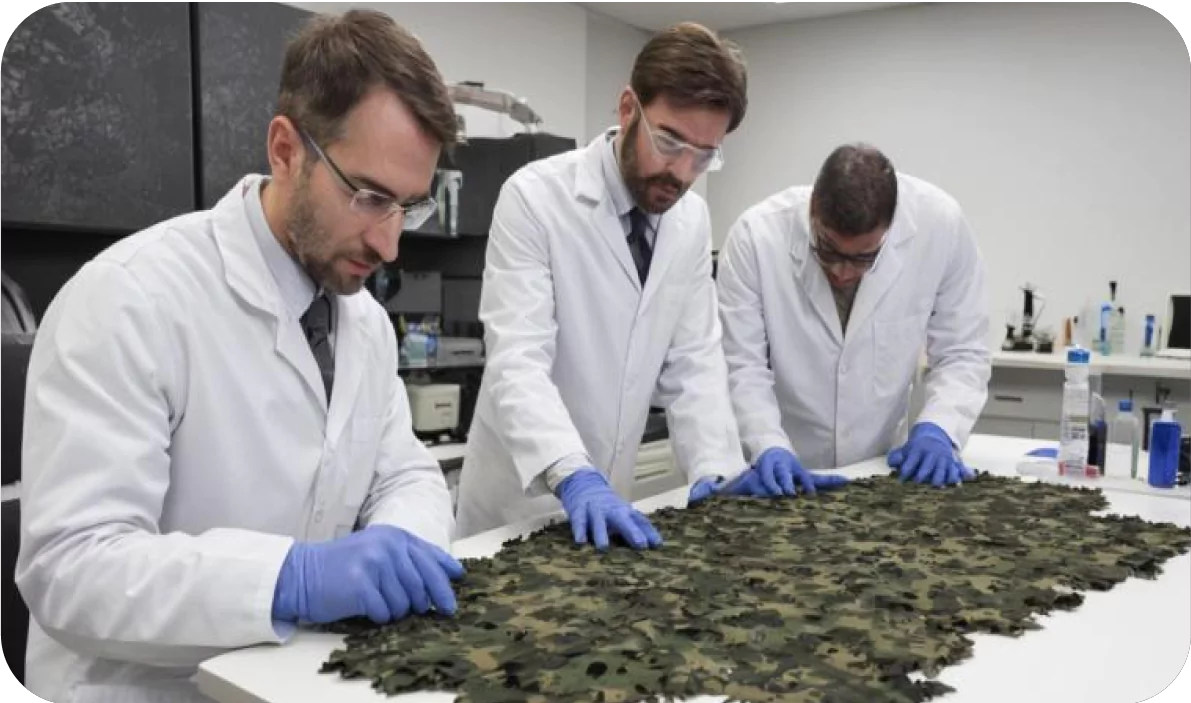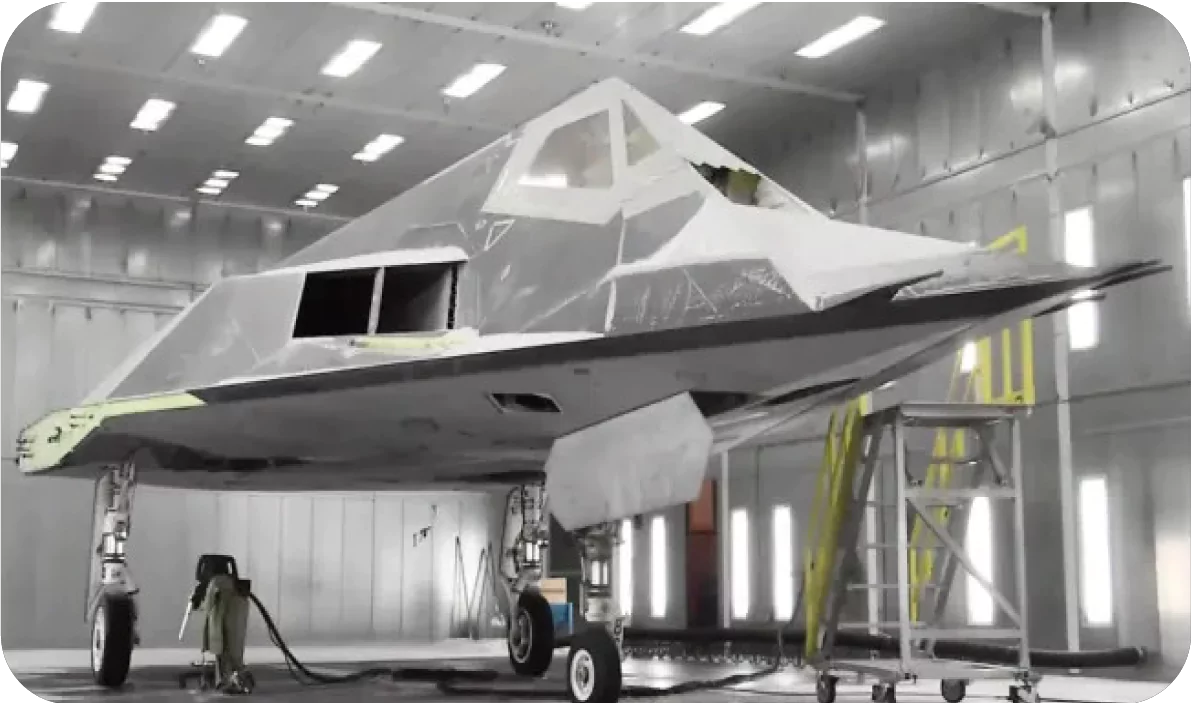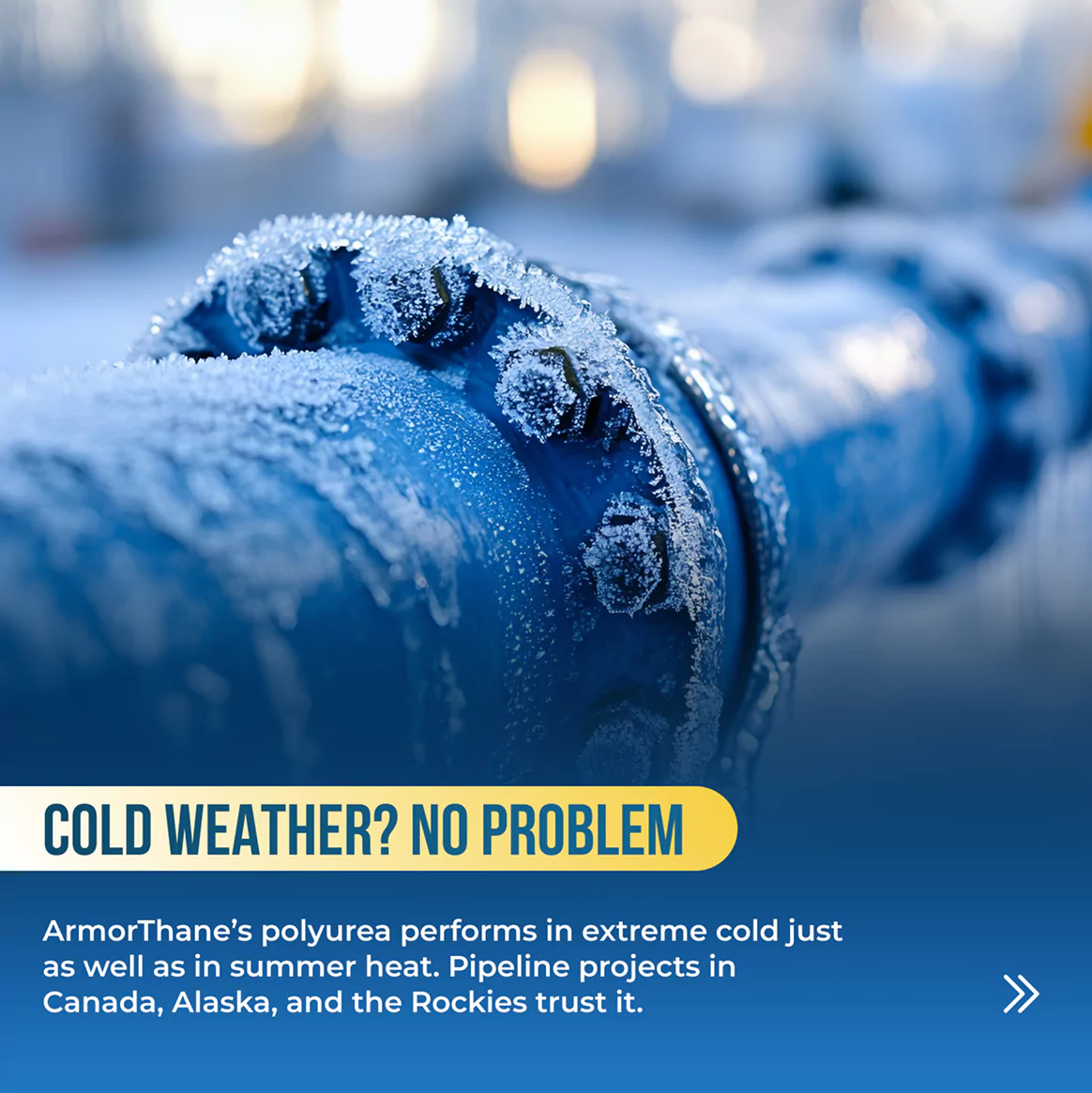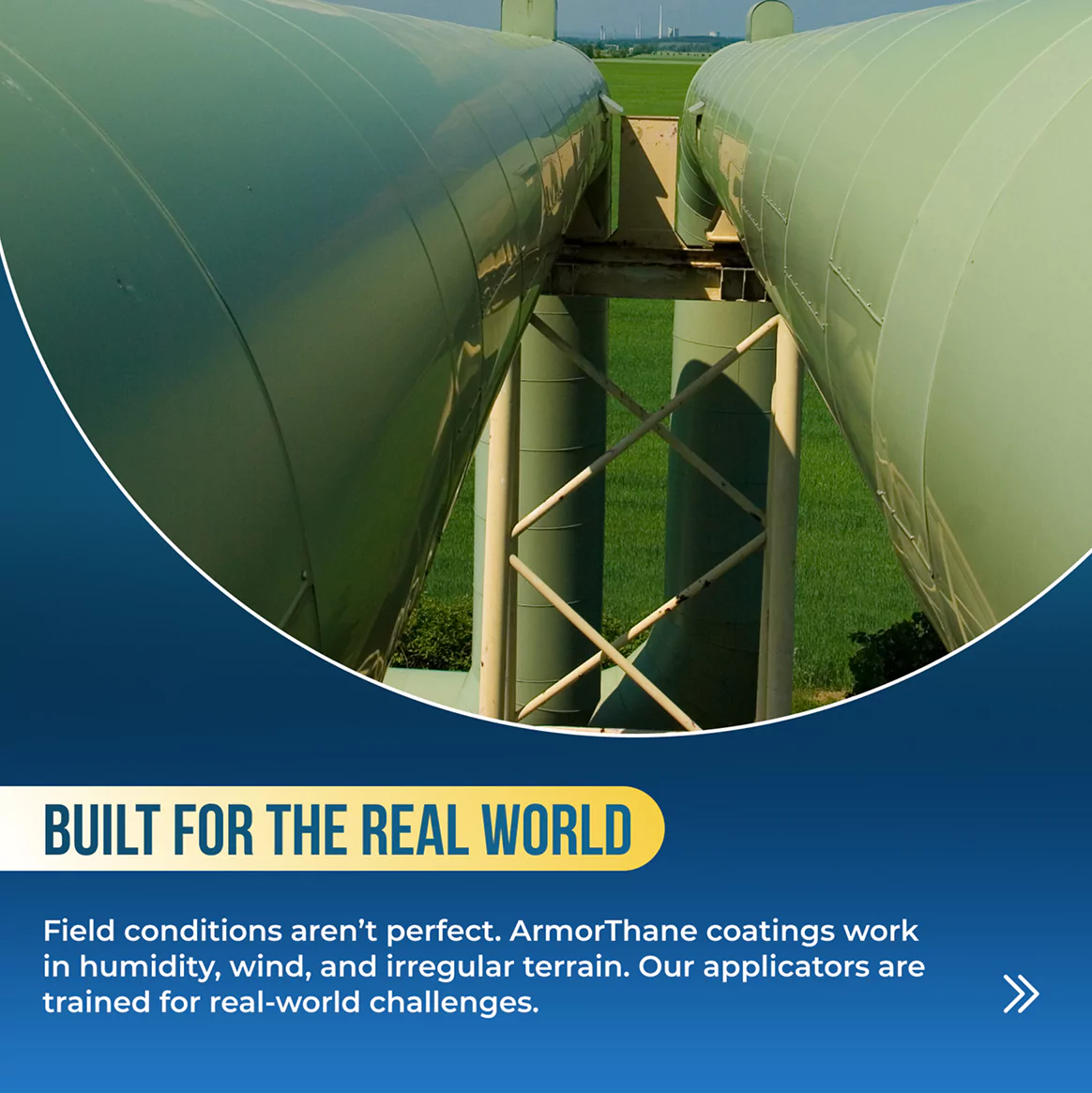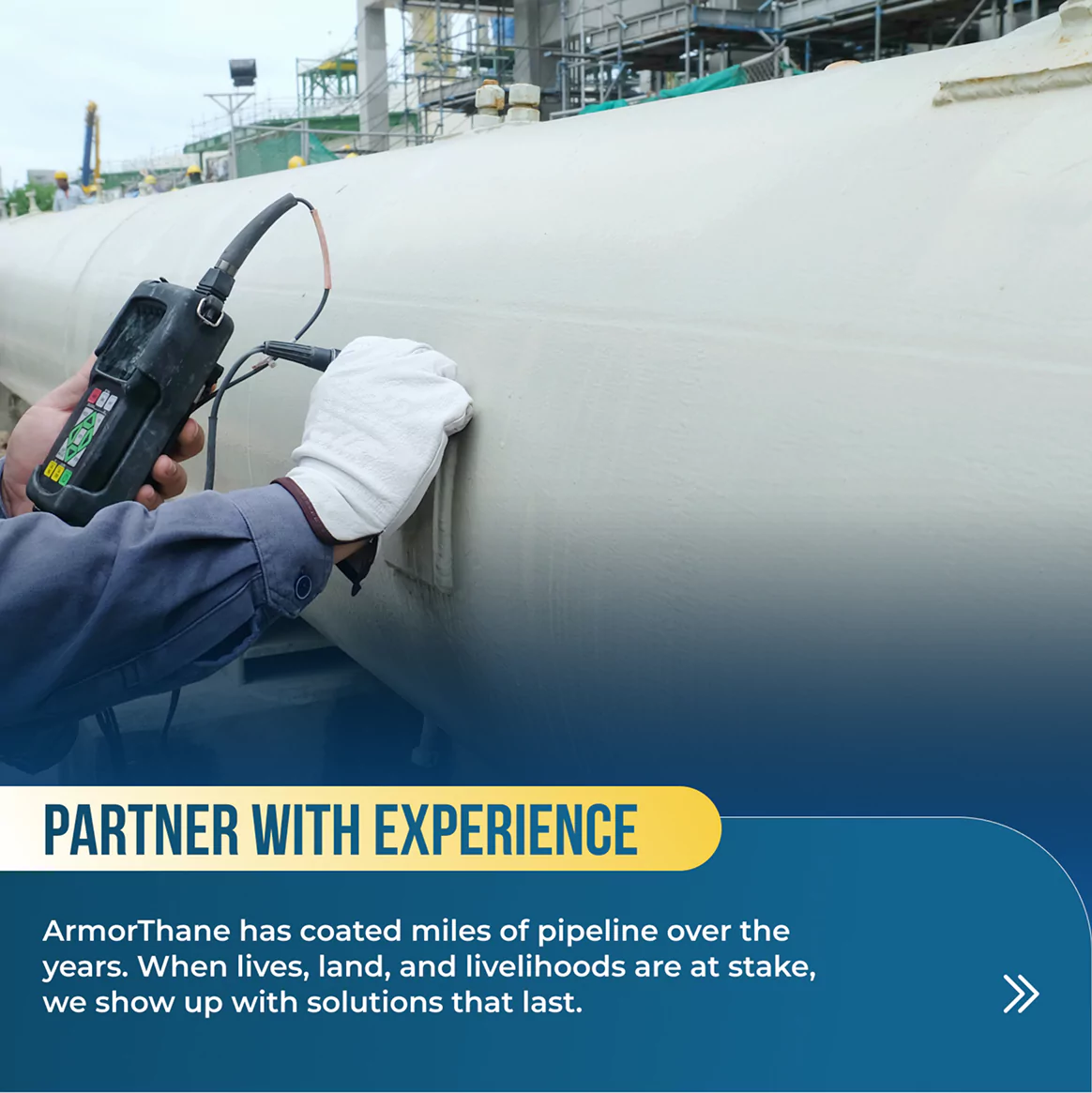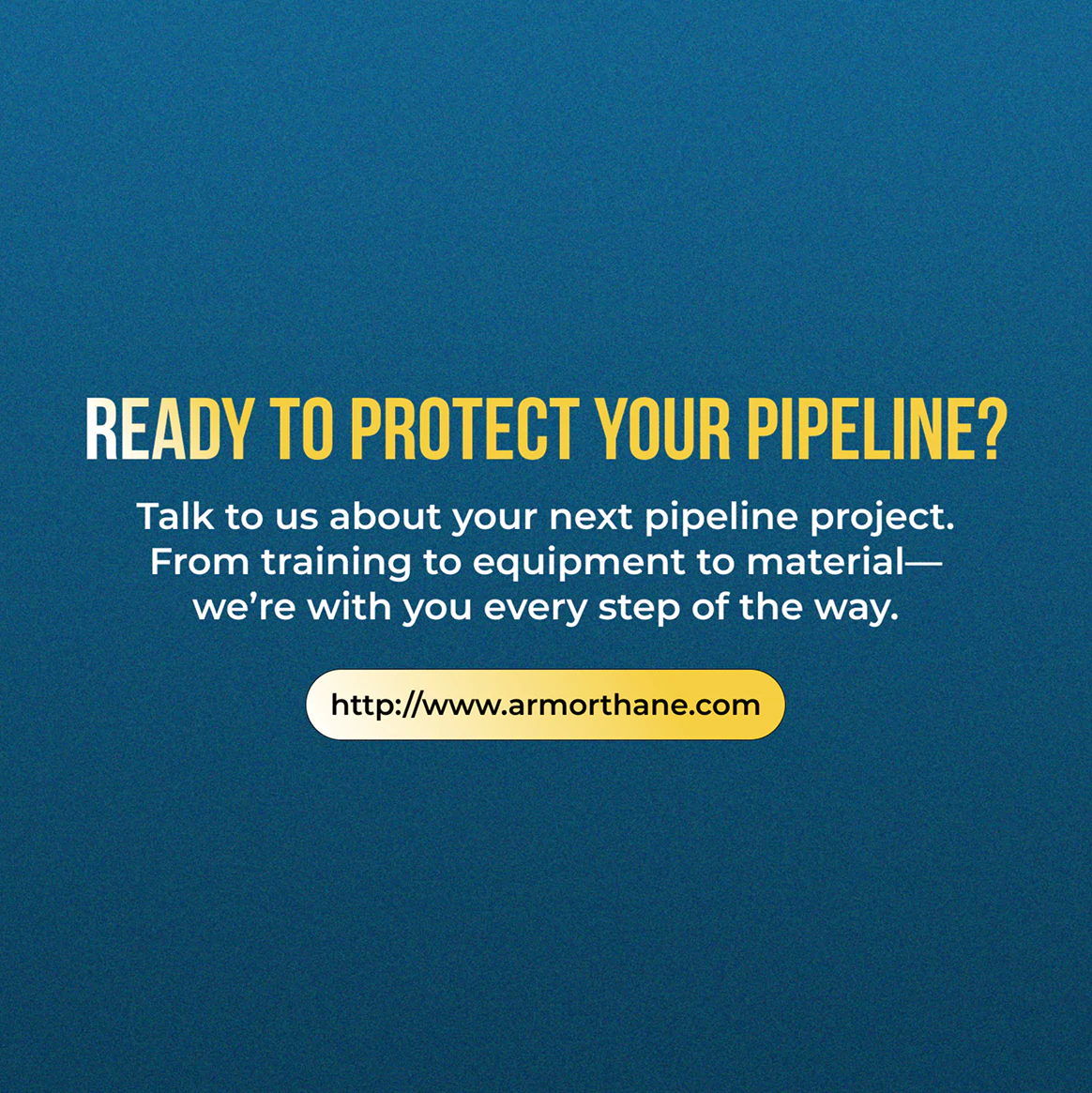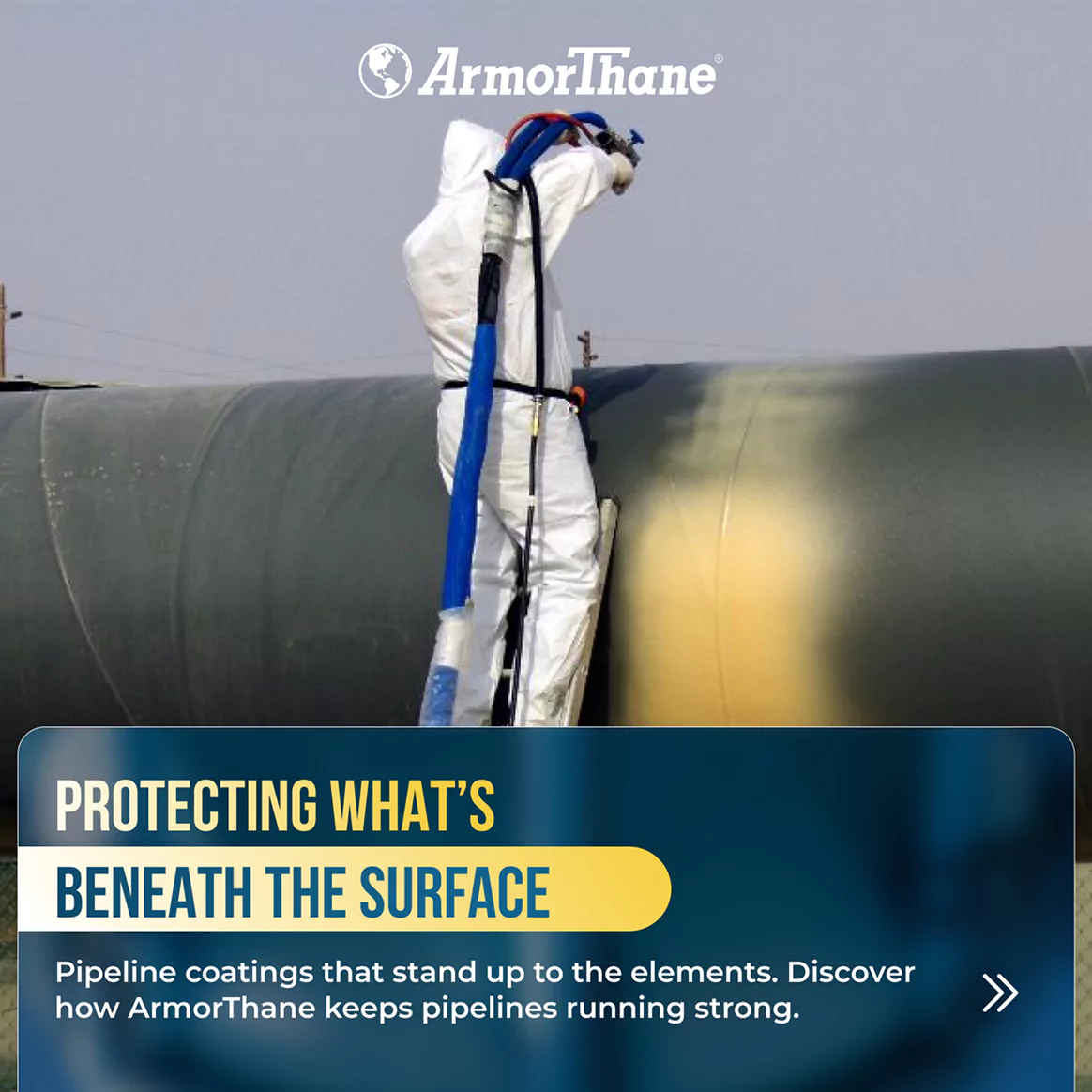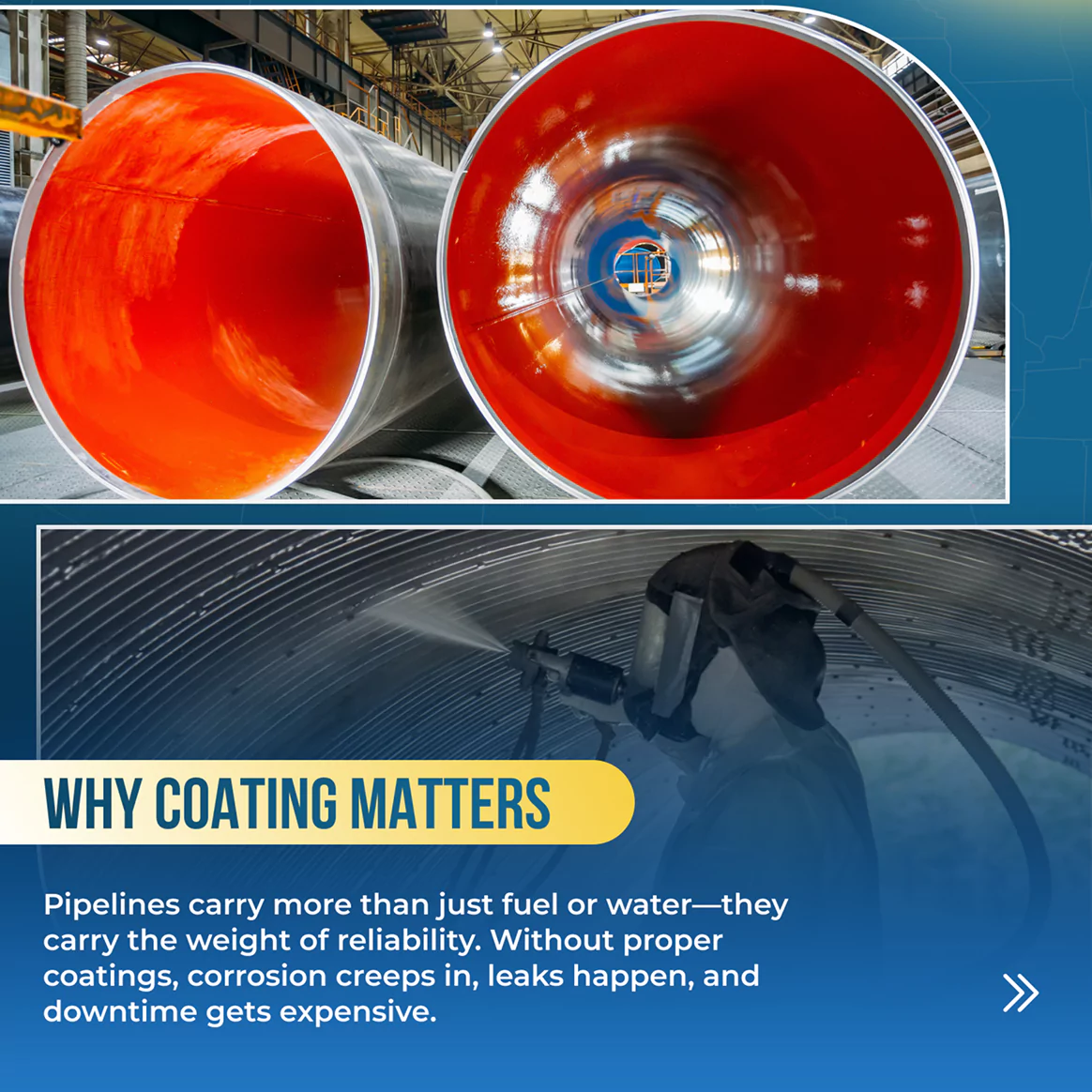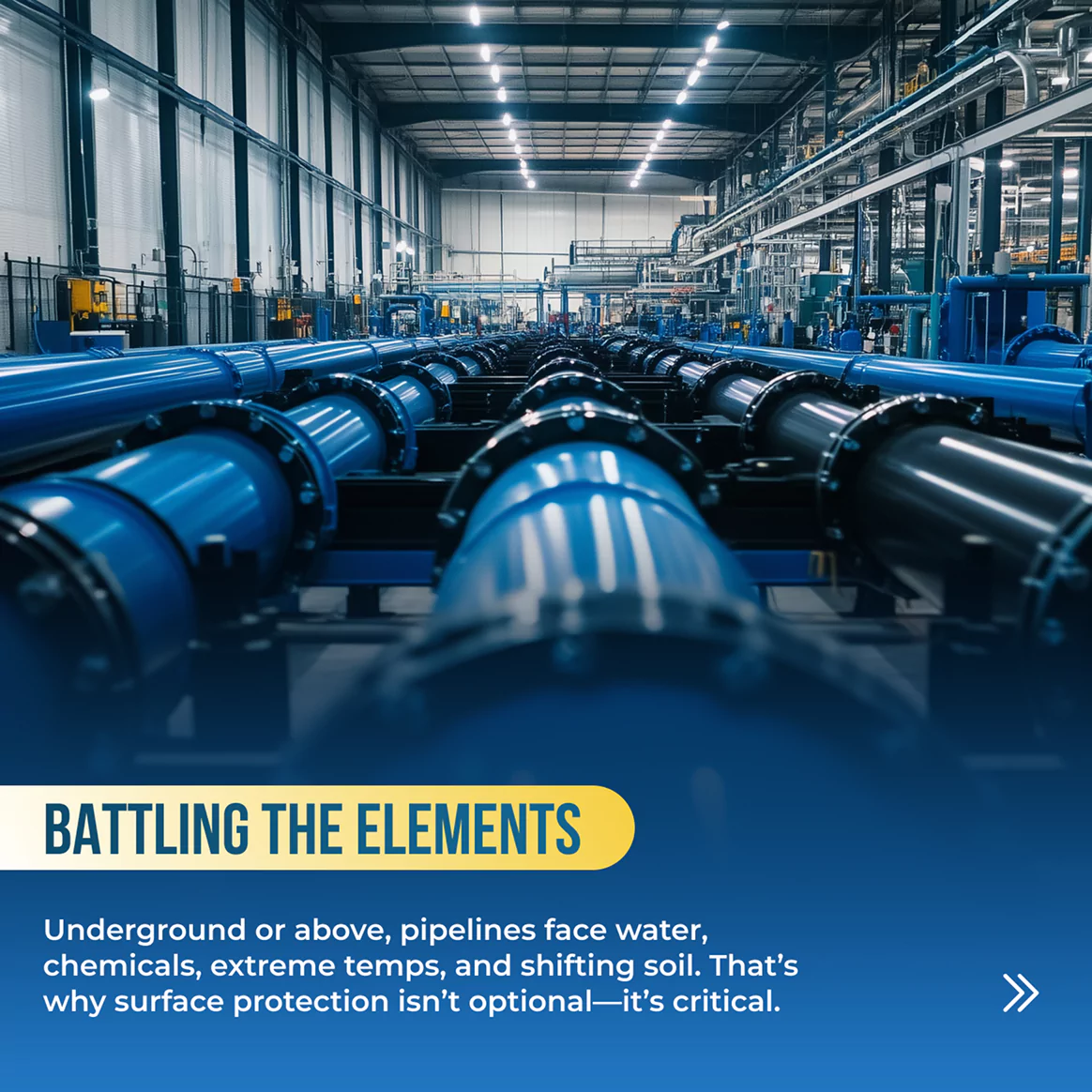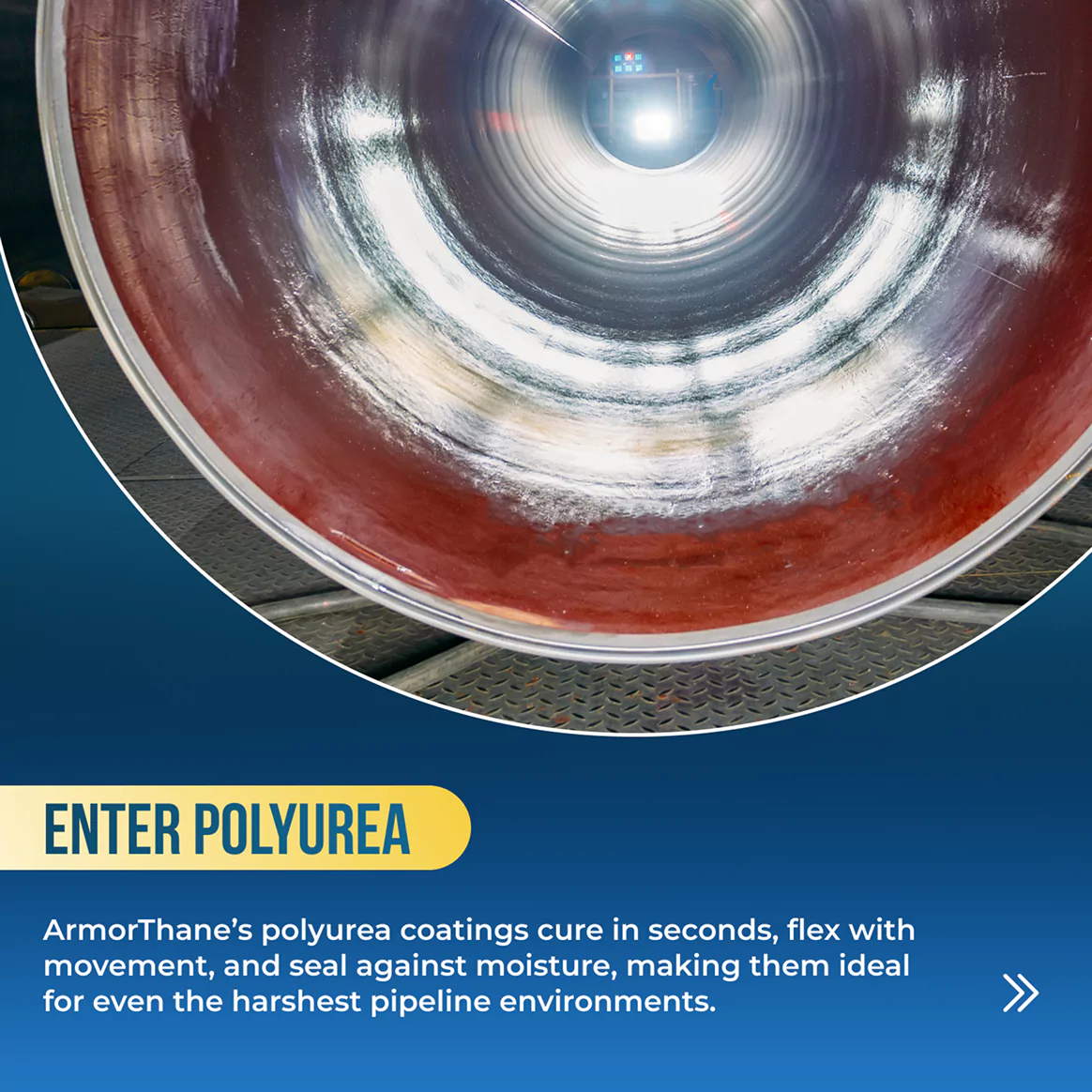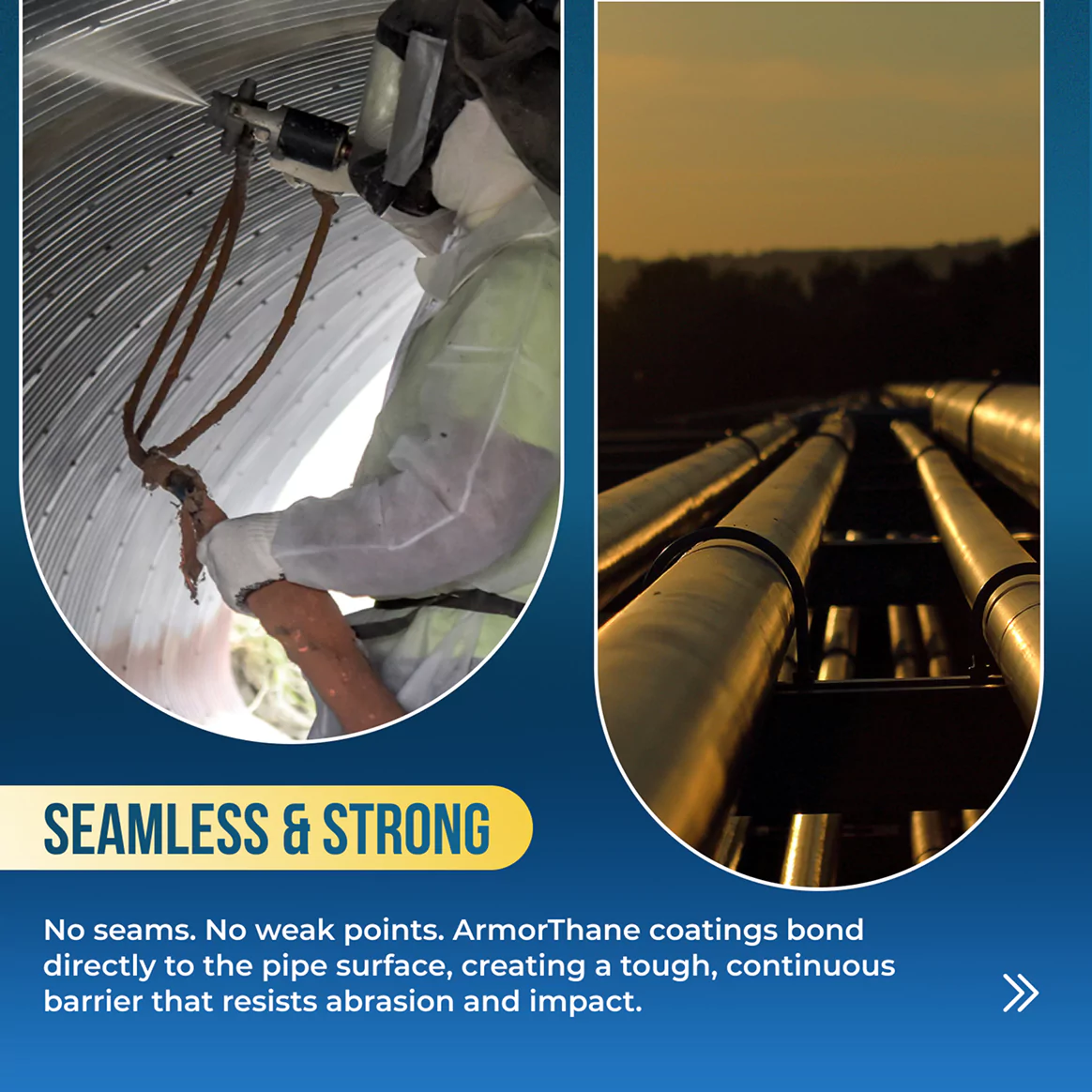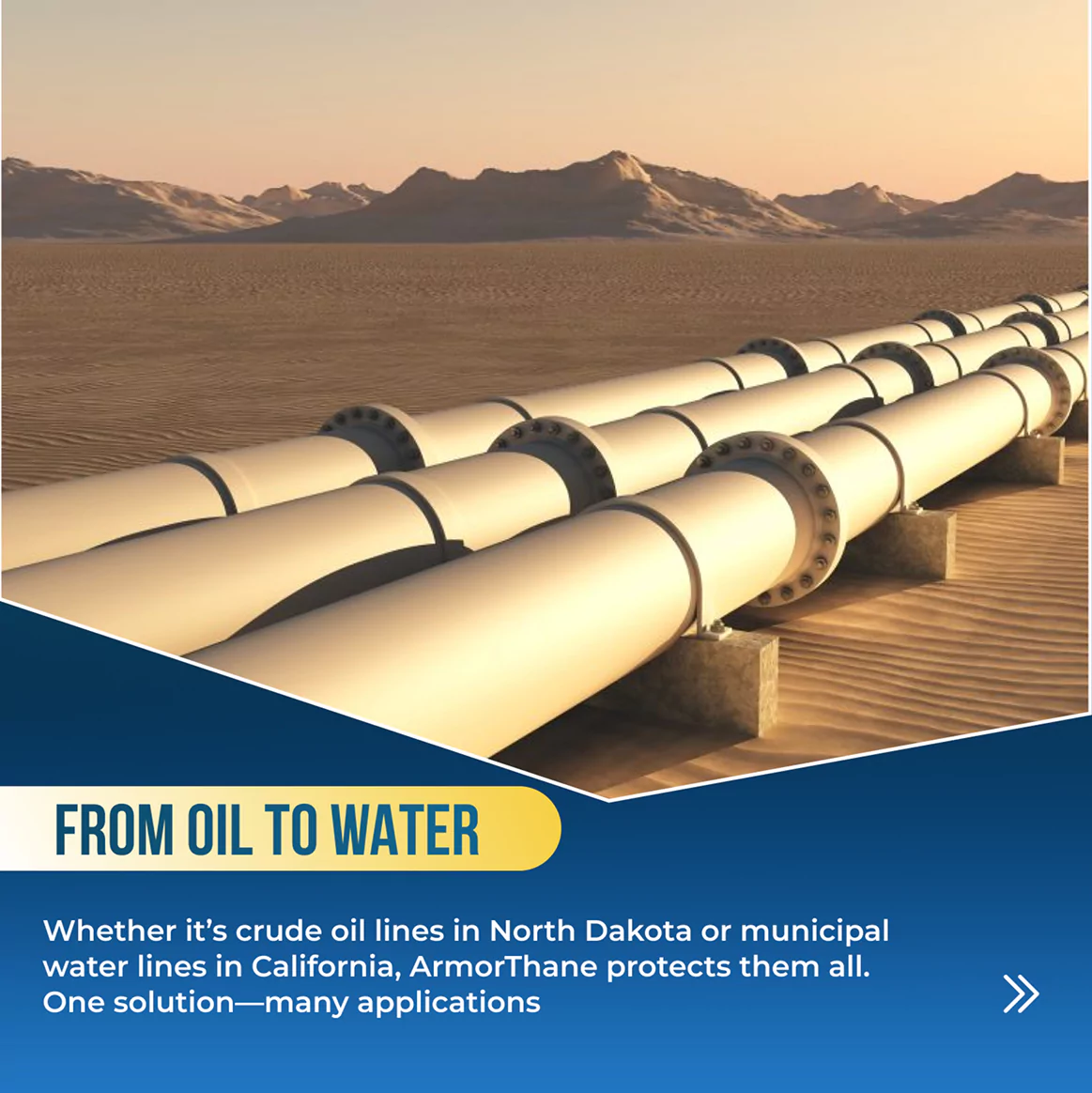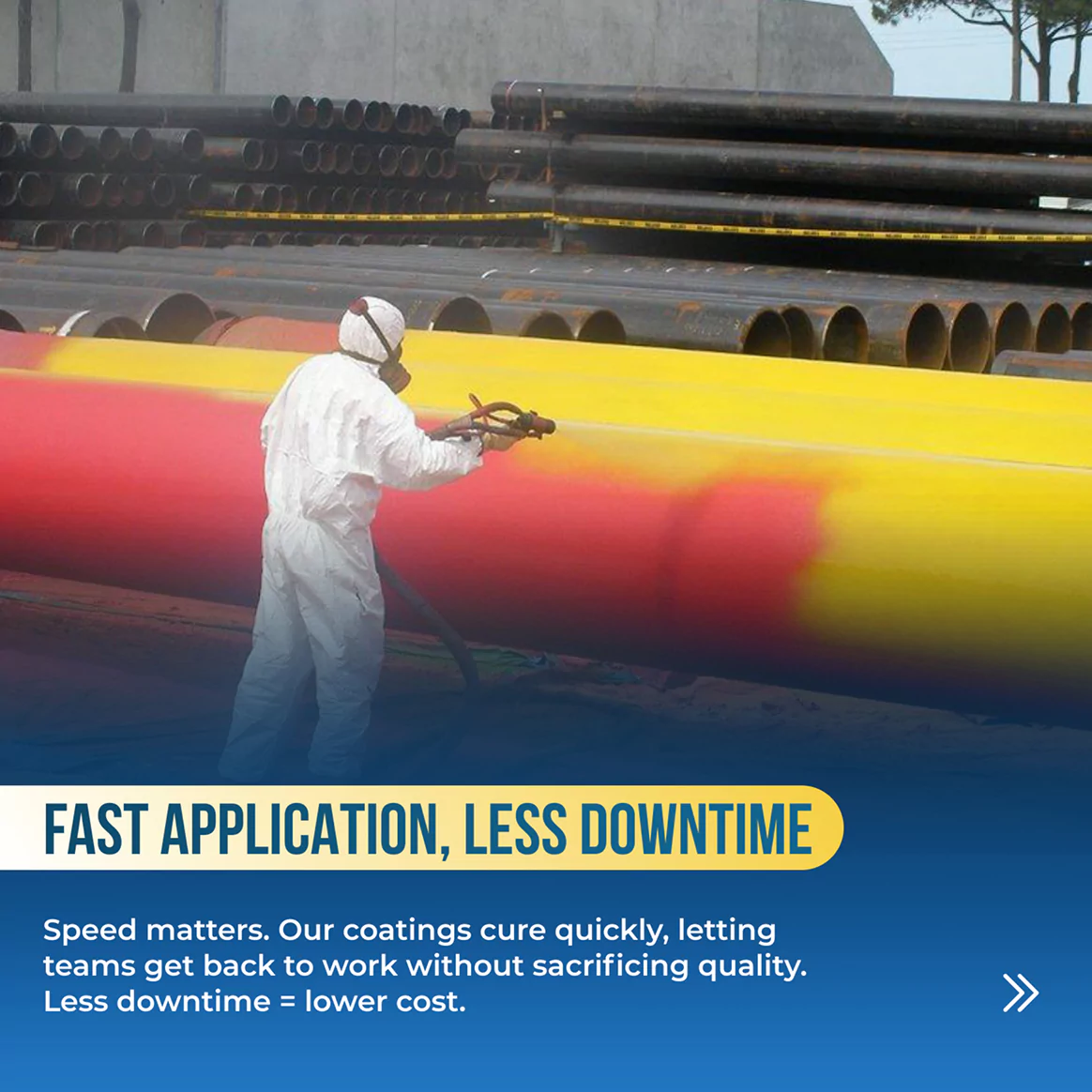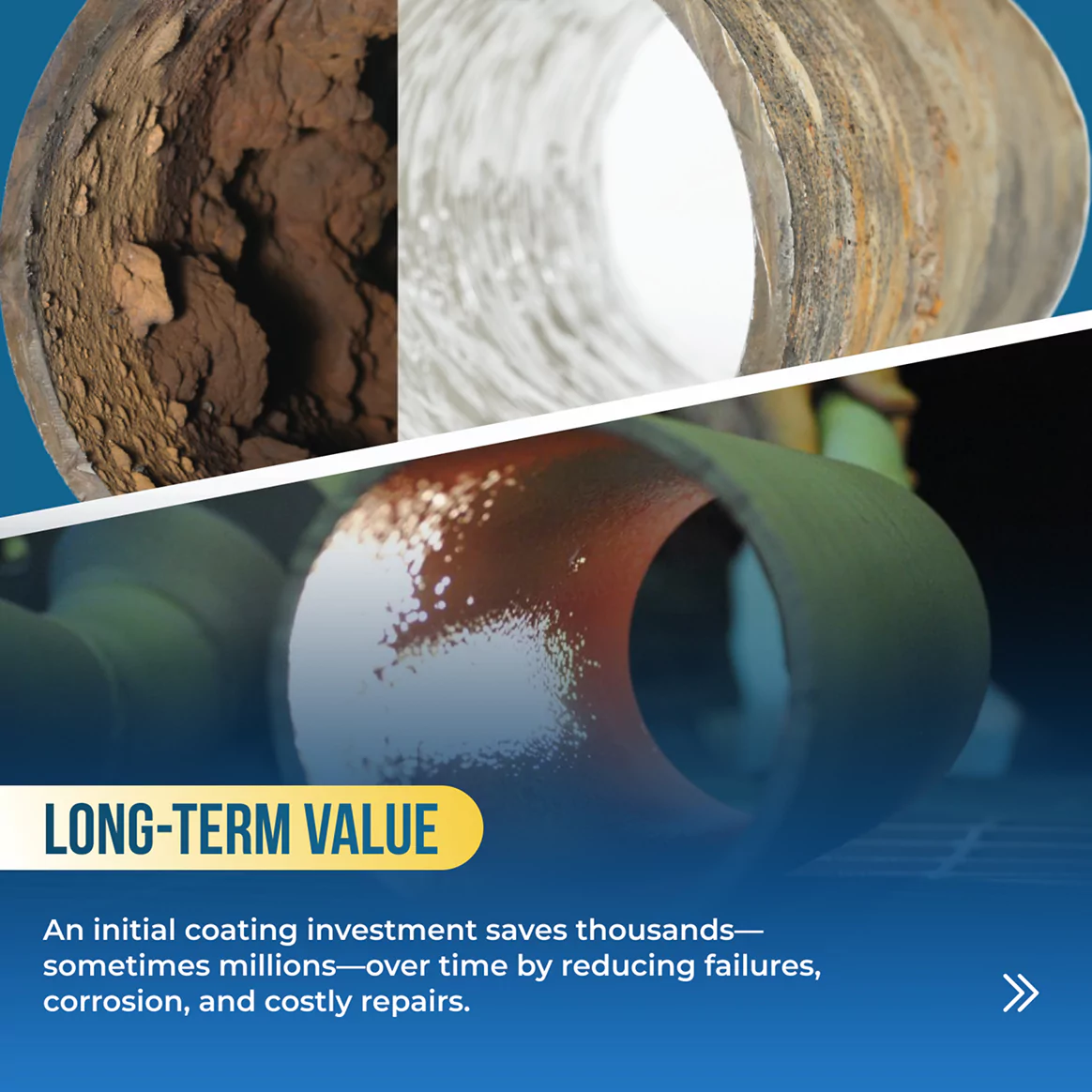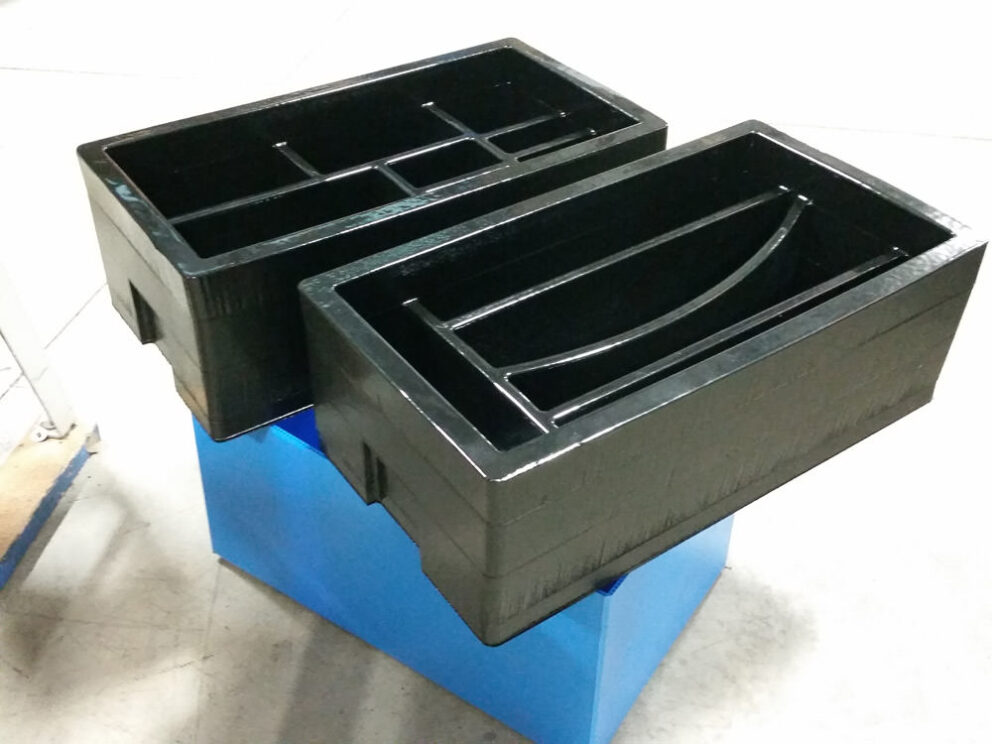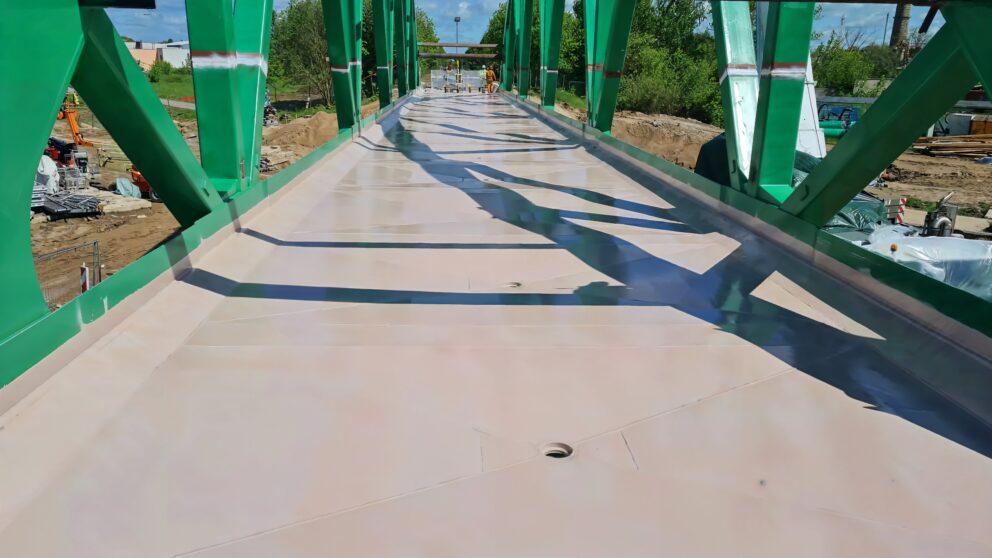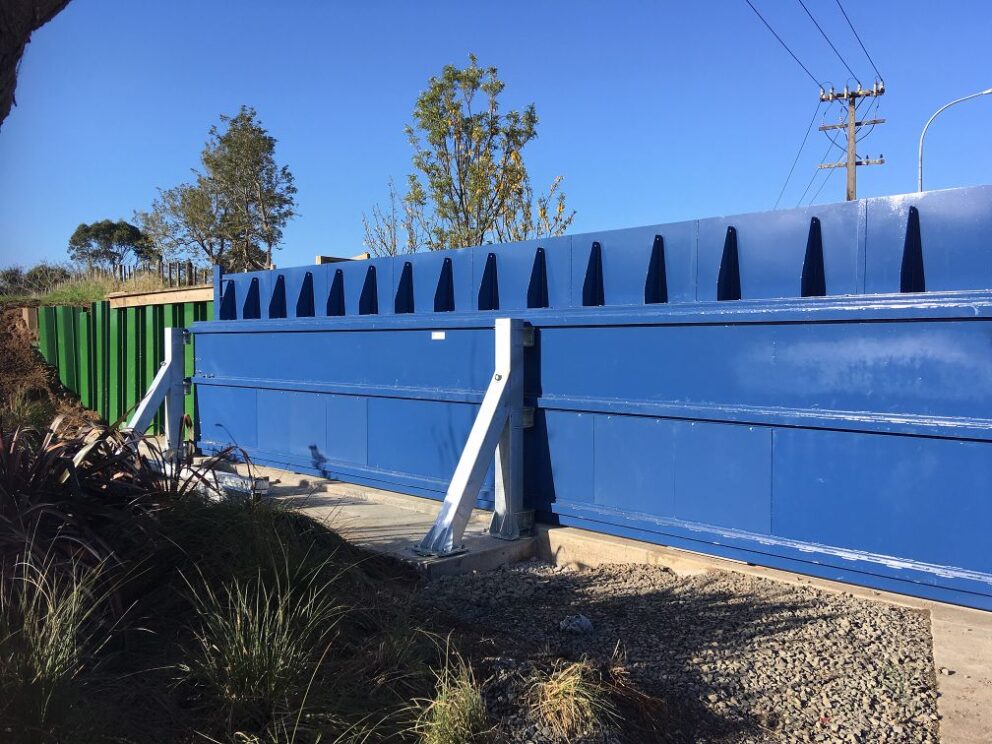PIPELINE COATINGS
Polyurea Spray Elastomer Technology for All-Purpose Pipeline Protection Inside and Out
Pipeline operators perpetually fight to preserve pipeline integrity. Corrosion, mechanical stress, and other harsh environmental factors can all take their toll, but an advanced protective coating solution called polyurea spray elastomer technology is raising the bar for how we safeguard steel pipe infrastructure. Polyurea is a high-tech coating system that offers high-performance, all-purpose protection that outclasses traditional coating solutions. It delivers exceptional corrosion resistance, abrasion resistance, and flexibility, emerging as the best choice for long-term pipeline reliability across the United States, North America, and beyond.
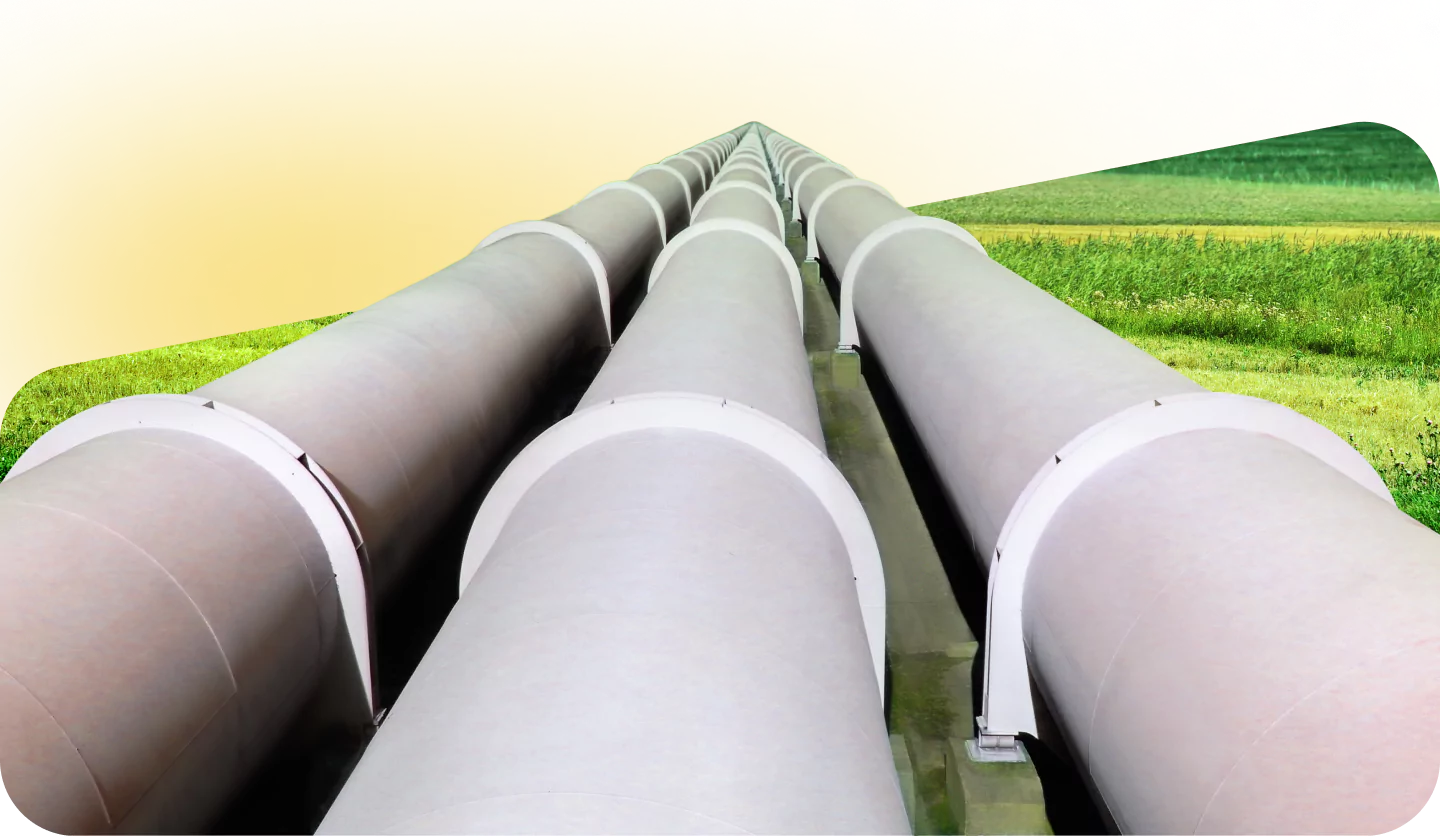
COMPLIMENTARY STRENGTH OR STANDALONE DURABILITY
COMPLIMENTARY STRENGTH
OR STANDALONE DURABILITY
Corrosion is the primary threat to any pipeline construction project, and without extra protection, pipelines are sure to succumb to oxidative decay. To fight the never-ending fight against corrosion, polyurea coatings form a seamless, durable barrier on steel surfaces, which acts as an anti-corrosion layer by preventing moisture, chemicals, and oxygen from reaching the surface to cause damage. This barrier works hand-in-hand with cathodic protection systems to achieve comprehensive corrosion control — by minimizing coating defects (holidays) and bonding tightly to the steel, polyurea reduces the load on cathodic protection currents so that pipelines remain shielded from rust and electrochemical deterioration.
As a result, polyurea coating solutions significantly extend pipeline service life while maintaining the pipeline corrosion protection coating’s performance even in aggressive soil or marine environments. And unlike older epoxy or bitumen coatings, polyurea’s chemistry creates an impermeable membrane that resists undercutting and disbondment, which means that even if minor damage occurs, water cannot easily creep between the coating and the pipe. So in essence, pipeline operators gain confidence that their assets are protected by a new generation of coating technology engineered for ultimate corrosion prevention.
As a result, polyurea coating solutions significantly extend pipeline service life while maintaining the pipeline corrosion protection coating’s performance even in aggressive soil or marine environments. And unlike older epoxy or bitumen coatings, polyurea’s chemistry creates an impermeable membrane that resists undercutting and disbondment, which means that even if minor damage occurs, water cannot easily creep between the coating and the pipe. So in essence, pipeline operators gain confidence that their assets are protected by a new generation of coating technology engineered for ultimate corrosion prevention.
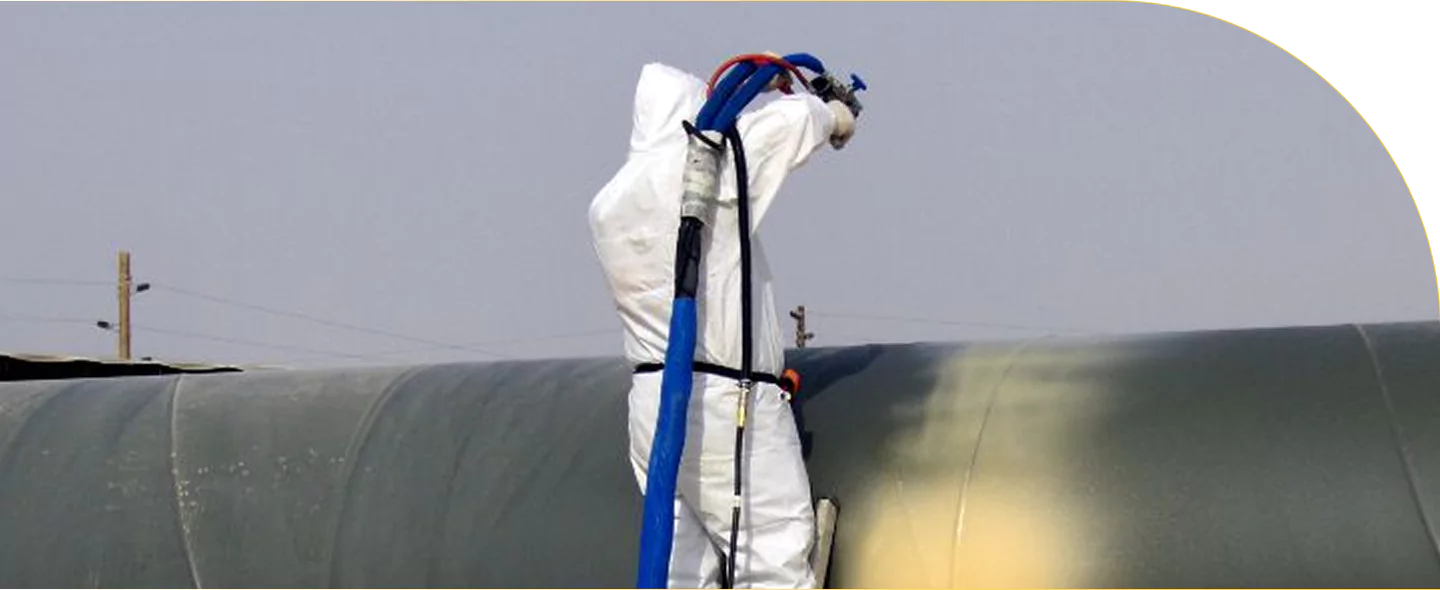
HIGH-PERFORMANCE IN ANY CLIMATE AND
UNDER ANY CONDITIONS
HIGH-PERFORMANCE IN ANY CLIMATE AND UNDER ANY CONDITIONS
Pipelines often operate in extremely harsh conditions – from desert heat to Arctic cold. Polyurea pipeline coatings are engineered to withstand these challenges and protect against physical damage; this elastomeric coating has outstanding impact resistance and toughness, acting as a resilient shield against rocks, debris, and other hazards during backfilling of below-ground pipelines or in service. In contrast with brittle coatings that may crack, polyurea absorbs shocks and bends with the pipe, maintaining a continuous seal even if the ground shifts or the pipeline expands under pressure.
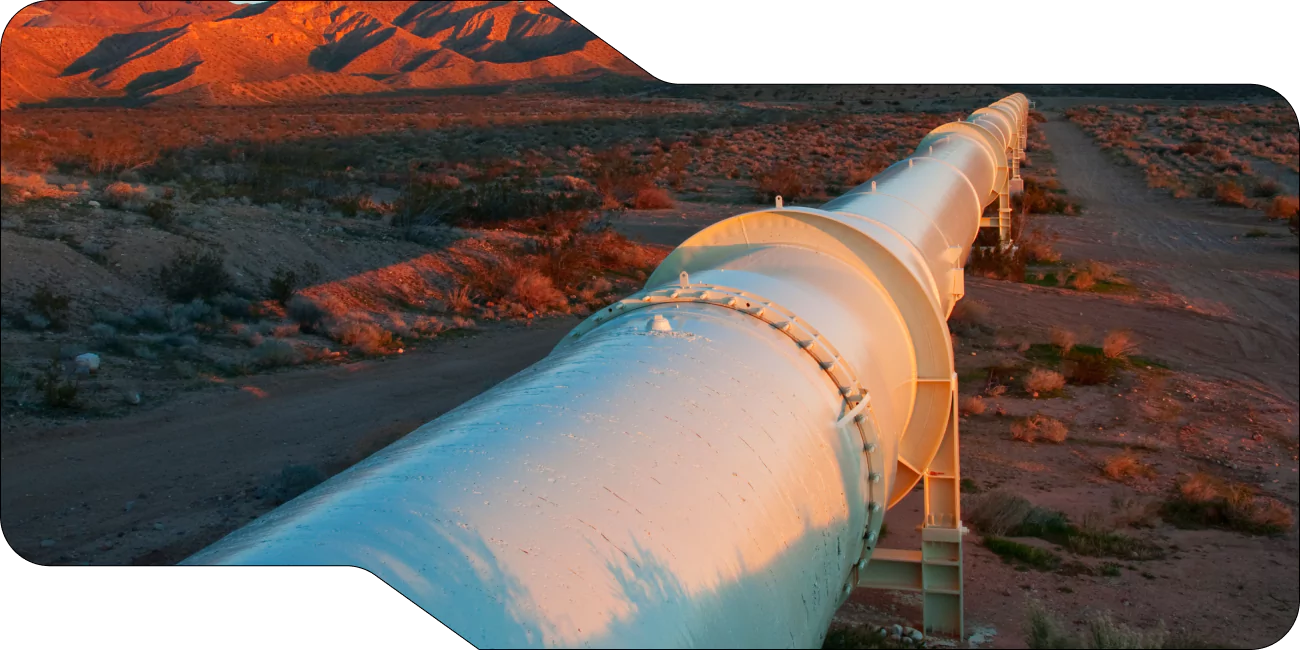
Polyurea also exhibits exceptional abrasion resistance. It resists wear from abrasive soils or sand movement that can scour a pipeline’s exterior over time. Equally important, polyurea handles wide operating temperatures and thermal cycling with ease, as its high elongation (often over 300%) allows it to accommodate pipe thermal expansion and contraction without losing hold of quality adhesion. Coatings like FBE or older enamels might shatter or peel in such conditions, but polyurea remains firmly bonded and intact; additionally, polyurea’s chemical resistance means it won’t degrade when exposed to corrosive soils or transported media. This truly robust performance gives pipeline operators confidence that their coating will endure decades of service in any environment, providing reliable mechanical protection and corrosion defense throughout.
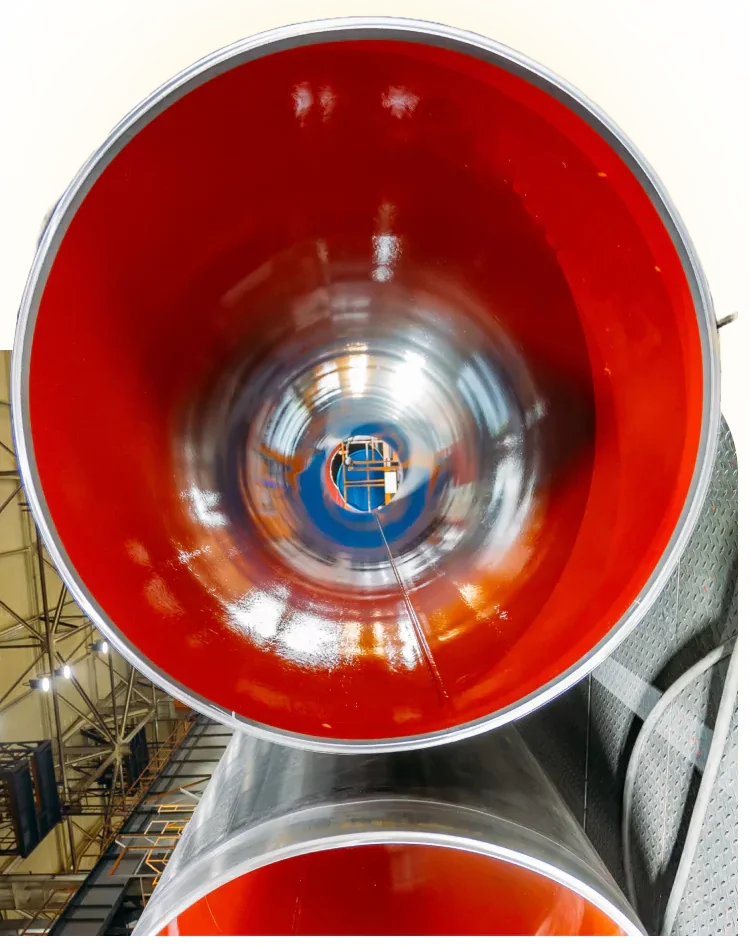
DUAL INTERNAL AND EXTERNAL PROTECTION
Polyurea coatings are adaptable for both the outside and inside of pipelines. Externally, polyurea serves as a superior external coatings system that can be applied over the entire pipe and at field joints (girth welds) with equal effectiveness. Moreover, unlike rigid wraps, the polyurea exterior coating remains bonded through soil stress and impact, preserving the pipe even in shifting ground. Because it cures so fast, crews can coat field welds and backfill trenches without delay, securing new pipelines against corrosion from day one.
Internally, polyurea works as a durable internal pipeline coating or liner. It creates a smooth, corrosion-resistant barrier on the pipe interior that protects steel from aggressive fluids and prevents buildup. This is valuable in pipeline systems carrying anything from crude oil and gas to municipal water; in sewage and wastewater lines, polyurea stands up to hydrogen sulfide and other corrosive byproducts, while in drinking water pipelines, specially formulated polyurea (with proper certification) can provide a safe, inert lining suitable for potable water supplies. In all cases, using polyurea inside the pipe helps maintain flow efficiency and guards against leaks or contamination over the pipeline’s life.
Internally, polyurea works as a durable internal pipeline coating or liner. It creates a smooth, corrosion-resistant barrier on the pipe interior that protects steel from aggressive fluids and prevents buildup. This is valuable in pipeline systems carrying anything from crude oil and gas to municipal water; in sewage and wastewater lines, polyurea stands up to hydrogen sulfide and other corrosive byproducts, while in drinking water pipelines, specially formulated polyurea (with proper certification) can provide a safe, inert lining suitable for potable water supplies. In all cases, using polyurea inside the pipe helps maintain flow efficiency and guards against leaks or contamination over the pipeline’s life.
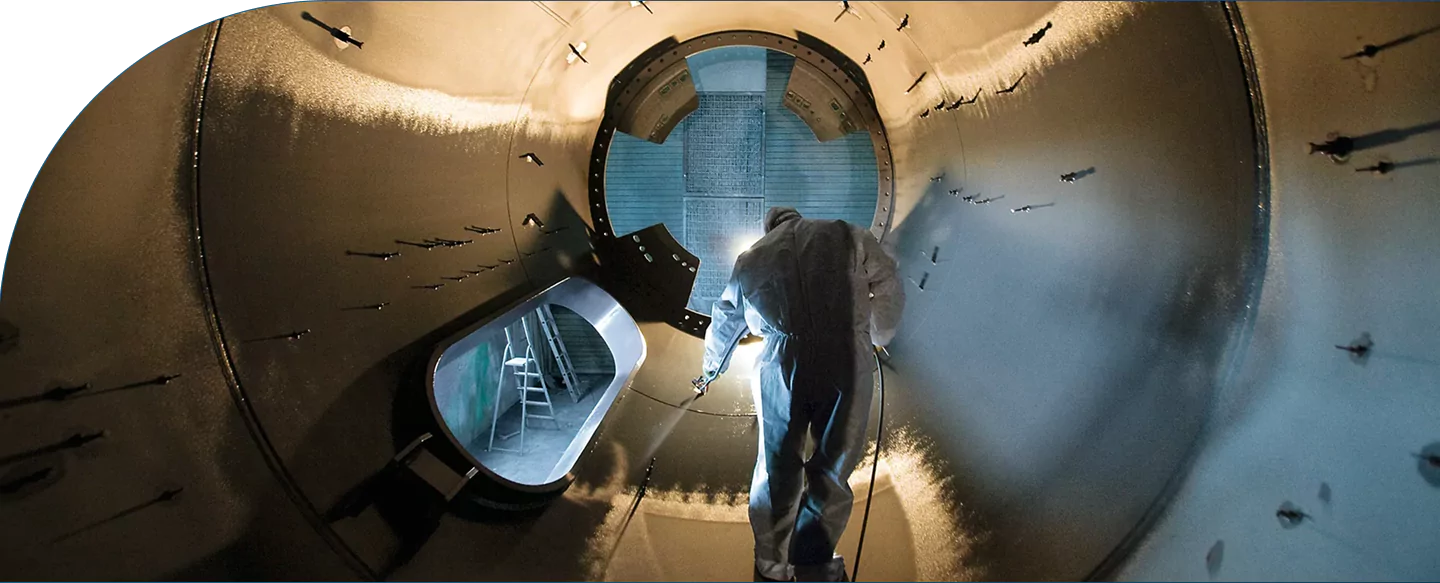
SPEED AND VERSATILITY YIELDS EFFICIENCY
SPEED AND VERSATILITY
YIELDS EFFICIENCY
Polyurea excels in terms of how quickly and easily it can be applied to pipelines. As a spray-applied liquid coatings system that is 100% solids, it begins to cure within seconds of application, and finishes far faster than alternative systems. Such a speedy cure minimizes downtime—new pipeline sections can be backfilled or put into service almost immediately, whereas a liquid epoxy coating might require many hours of curing, delaying pipeline construction schedules.
Modern application methods make polyurea even more efficient; using high-pressure plural-component spray equipment, applicators can coat pipes and fittings in a single continuous layer coating to the desired thickness, without multiple coats or long wait times. The result is a uniform, high-quality coating applied in one pass, regardless of the temperature and humidity, unlike some epoxies that demand strict environmental conditions. In practical terms, this heightened flexibility means contractors can apply polyurea in varied climates with consistent results.
Another benefit is the eco-friendly nature of polyurea during the application process. Being solvent-free and virtually zero-VOC, it lacks hazardous fumes and reduces the environmental impact on site. Crews appreciate the improved safety and easier cleanup, and nearby communities benefit from the lack of strong odors. Polyurea’s rapid, one-coat application process simplifies pipeline coating jobs and integrates smoothly into both new installations and maintenance projects. Contractors can treat it as a drop-in replacement for traditional coatings – effectively introducing new products such as polyurea that speed up projects without sacrificing quality.
Modern application methods make polyurea even more efficient; using high-pressure plural-component spray equipment, applicators can coat pipes and fittings in a single continuous layer coating to the desired thickness, without multiple coats or long wait times. The result is a uniform, high-quality coating applied in one pass, regardless of the temperature and humidity, unlike some epoxies that demand strict environmental conditions. In practical terms, this heightened flexibility means contractors can apply polyurea in varied climates with consistent results.
Another benefit is the eco-friendly nature of polyurea during the application process. Being solvent-free and virtually zero-VOC, it lacks hazardous fumes and reduces the environmental impact on site. Crews appreciate the improved safety and easier cleanup, and nearby communities benefit from the lack of strong odors. Polyurea’s rapid, one-coat application process simplifies pipeline coating jobs and integrates smoothly into both new installations and maintenance projects. Contractors can treat it as a drop-in replacement for traditional coatings – effectively introducing new products such as polyurea that speed up projects without sacrificing quality.
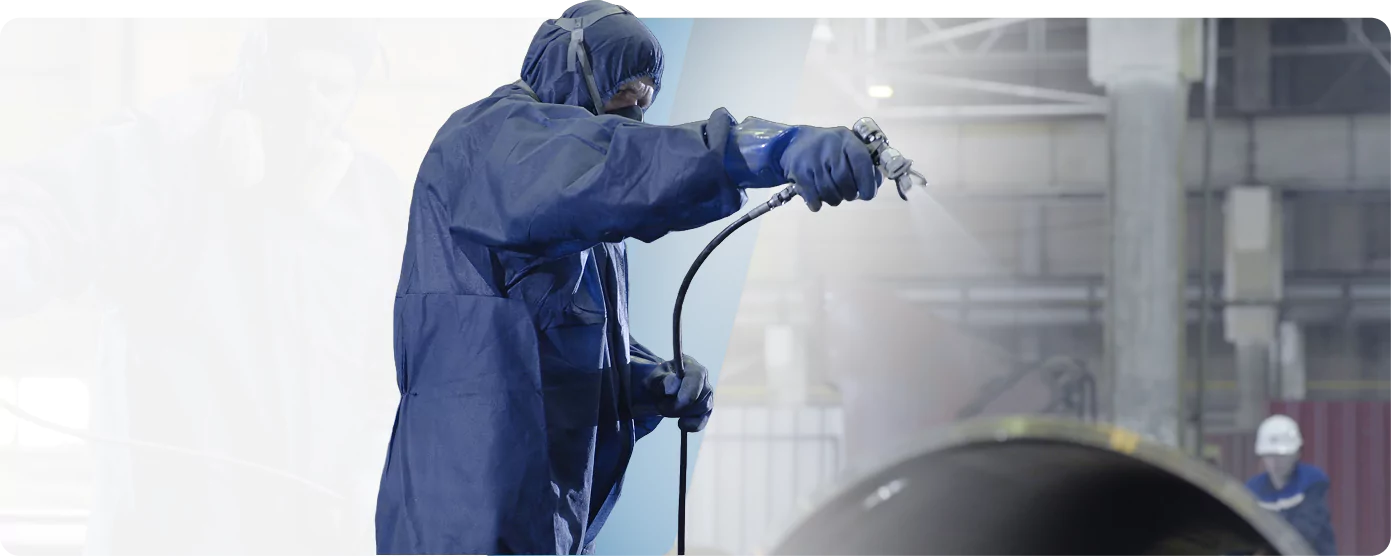
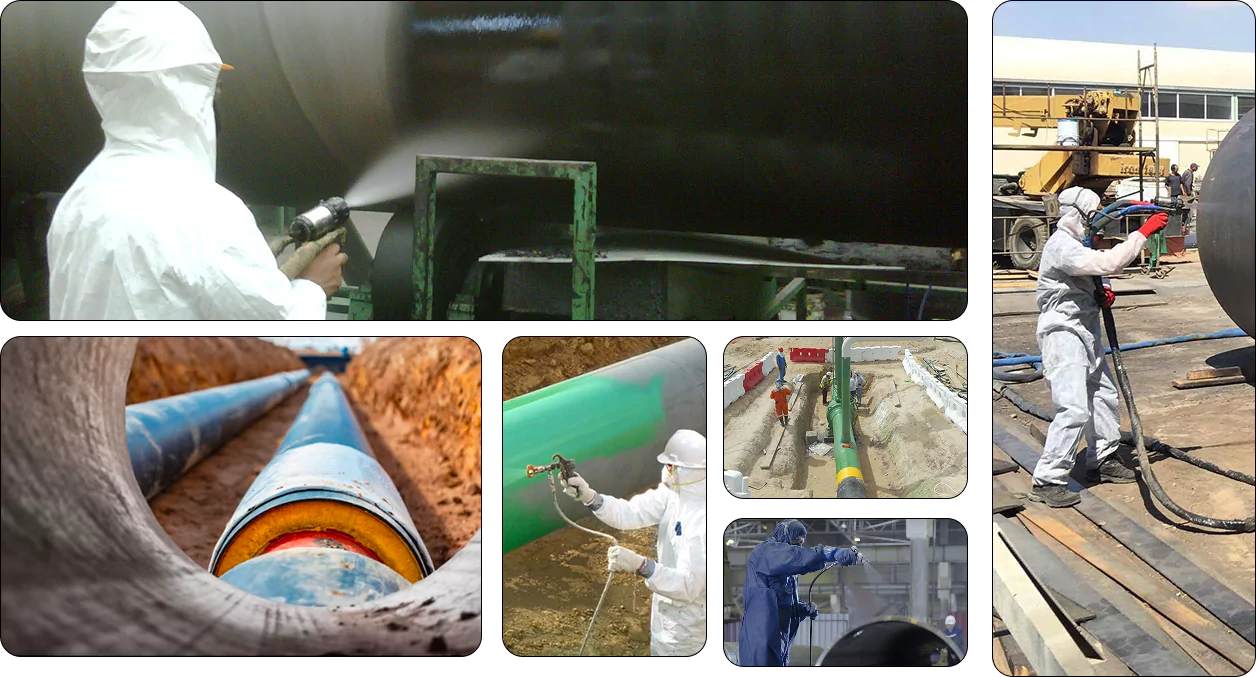
OUTPERFORMING COMMON TYPES OF PIPELINE COATINGS
OUTPERFORMING COMMON
TYPES OF PIPELINE COATINGS
Polyurea technology is better by leaps and bounds compared to the common types of pipeline coatings used in the past. Traditional solutions like fusion-bonded epoxy coating (FBE), liquid epoxy coatings, polyurethane paints, and coal tar epoxy have been used for years on pipelines, but while each of these coating materials has merits, they also have critical limitations. FBE coatings and other epoxy-based coatings adhere well but are rigid and can crack under soil stress or pipeline movement. Coal tar epoxy coatings provide some chemical resistance but are brittle in cold weather and pose environmental and safety concerns due to their toxic components. And although polyurethane paints add some flexibility, they typically cannot match polyurea’s combined strength and fast curing.
By contrast, polyurea is a modern coating solution that addresses all these shortcomings. It delivers the strong adhesion and chemical resistance of an epoxy, yet remains highly flexible and impact-resistant, eliminating the brittleness that plagued older systems. Because polyurea cures so quickly into a durable membrane, it does not require the long curing times of traditional liquids or the high-temperature ovens of FBE. There is no need to compromise between toughness and flexibility – polyurea provides both in one package.
Pipeline engineers and operators are increasingly recognizing these benefits. In new pipeline projects and rehabilitation jobs across the United States, polyurea has emerged as a superior alternative that meets or exceeds industry standards. Its performance in harsh conditions and critical service environments has demonstrated reliability that outclasses legacy coatings, so by choosing polyurea, stakeholders invest in long-term protection that reduces maintenance needs and prevents costly failures, ultimately preserving pipeline integrity far better than the older coating technologies.
By contrast, polyurea is a modern coating solution that addresses all these shortcomings. It delivers the strong adhesion and chemical resistance of an epoxy, yet remains highly flexible and impact-resistant, eliminating the brittleness that plagued older systems. Because polyurea cures so quickly into a durable membrane, it does not require the long curing times of traditional liquids or the high-temperature ovens of FBE. There is no need to compromise between toughness and flexibility – polyurea provides both in one package.
Pipeline engineers and operators are increasingly recognizing these benefits. In new pipeline projects and rehabilitation jobs across the United States, polyurea has emerged as a superior alternative that meets or exceeds industry standards. Its performance in harsh conditions and critical service environments has demonstrated reliability that outclasses legacy coatings, so by choosing polyurea, stakeholders invest in long-term protection that reduces maintenance needs and prevents costly failures, ultimately preserving pipeline integrity far better than the older coating technologies.
LEARN MORE ABOUT
ARMORTHANE'S
PIPELINE COATINGS
LEARN MORE ABOUT ARMORTHANE'S PIPELINE COATINGS
LEARN MORE ABOUT ARMORTHANE'S
PIPELINE COATINGS
Polyurea has proven to be more than just another coating – it’s a comprehensive solution for corrosion control and long-term pipeline integrity. Its ability to safeguard steel pipelines against corrosion, abrasion, and environmental degradation is unmatched by older technologies, consistently delivering high-performance protection that keeps pipelines safe and operational for decades with minimal maintenance.
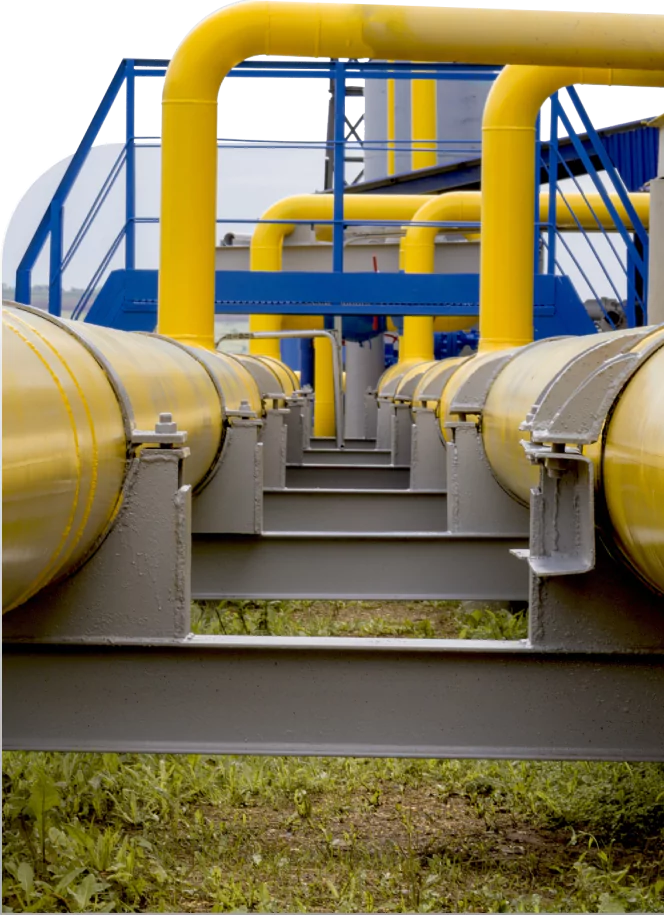
As existing pipeline infrastructure ages and new projects push into more demanding environments,
embracing polyurea is a forward-thinking strategy. This advanced material not only protects valuable assets but also reduces the risk of leaks and failures, enhancing overall safety and reliability. Companies like ArmorThane are at the forefront, providing specialized polyurea products and expertise to the industry, and our mission is simple: Protecting Your World. By choosing polyurea pipeline coatings, and ArmorThane as a partner, operators invest in longevity and superior performance. To learn more or discover how we’ve become the global one-stop shop for everything polyurea and polyurethane, give us a call or fill out our contact form, and we’ll be ready to help with anything you need.
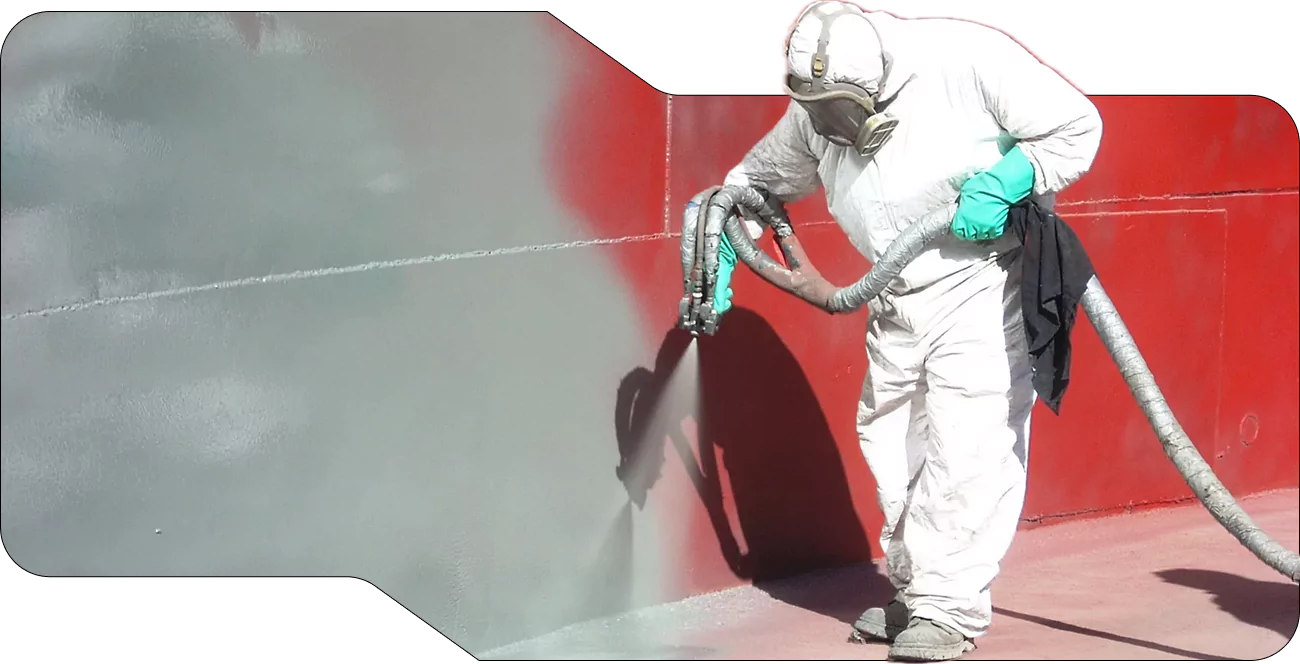
FREQUENTLY ASKED QUESTIONS
Polyurea offers a combination of fast curing, flexibility, and extreme durability that traditional coatings can’t match. Unlike fusion-bonded epoxy (FBE) or standard liquid epoxy, polyurea forms a seamless elastic membrane with superior corrosion resistance and abrasion resistance. It can handle pipeline movement and high temperatures without cracking, which means fewer repairs, longer service life, and better protection for the pipeline.
Yes. Polyurea is versatile and can serve as an internal coating for pipes carrying drinking water or wastewater. Many polyurea formulations are 100% solids and contain no harmful solvents, making them safe for potable water when properly certified. Internally, polyurea provides a smooth, corrosion-proof lining that resists chemicals and prevents leaks, and it’s equally effective on external surfaces, protecting steel pipe exteriors from soil and moisture.
Polyurea coatings are engineered for long-term performance, often lasting for decades under normal operating conditions. Their strong adhesion and resistance to mechanical damage and corrosion mean they stay intact far longer than older coatings. In many cases, pipelines coated with polyurea require minimal maintenance beyond routine inspections. By preserving the coating and preventing corrosion, polyurea helps maintain pipeline integrity and reduces the need for costly repairs or recoating.
latest news & bLOGS
CONTACT US
REQUEST A QUOTE OR
BECOME AN APPLICATOR
ArmorThane has built a strong reputation over the past 30 years for producing high-quality, durable protective coatings.

Phone Number
Tel: 417.831.5090

Email Us
moreinfo@armorthane.com
